As the anxiety-ridden year of 2020 winds down, much will be said about how the pandemic has forever changed the film industry: crippling the arena of theatrical exhibition, yet also making films available for a wider-than-ever audience. Like most cinephiles, we’re looking to get our hands on the titles that may have slipped under the radar or simply gone unseen, so—as we do each year—we’re sharing a rundown of the best titles available to watch at home.
Curated from the Best Films of 2020 So Far list we published for the first half of the year, it also includes films we’ve enjoyed the past few months and some we’ve recently caught up with. This is far from a be-all, end-all year-end feature (that will come in December), but rather something that’s hopefully a helpful tool for readers to have a chance to seek out notable, perhaps underseen, titles of late.
Note that we’re going by U.S. virtual (and the few theatrical) releases, and that streaming services are limited solely to the territory as well. If you want to stay up-to-date with new titles being made available, check out our weekly column. In the meantime, see our rundown below, which will be updated as new titles hit streaming services, so make sure to bookmark.
Ammonite (Francis Lee)
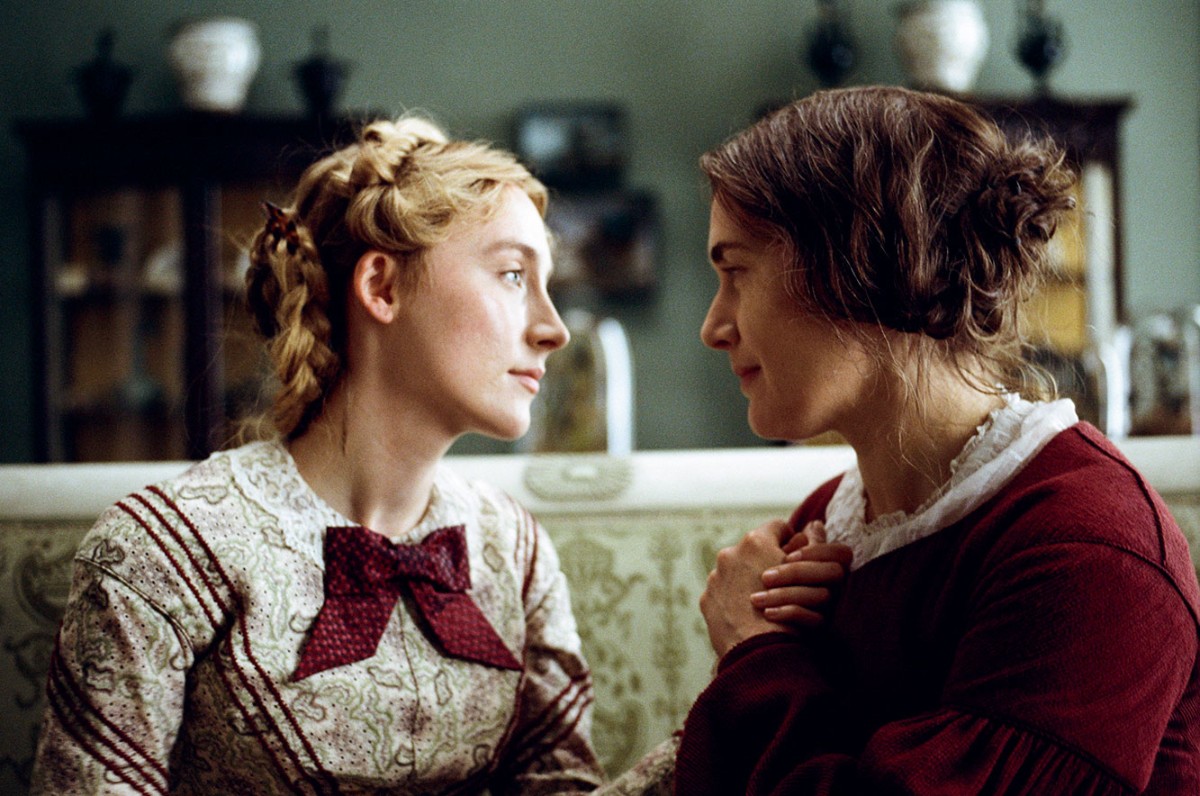
Calling a Kate Winslet performance career-best is no easy statement, but her turn as 19th-century English paleontologist Mary Anning in Ammonite is certainly in consideration. Few writer-directors trust their actors to do so much with so little dialogue as Francis Lee. Like Josh O’Connor’s Johnny in Lee’s debut, God’s Own Country, Mary is inward and stoic; we learn about her through her work rather than through her words. The opening scenes of Ammonite are Mary on the beaches of Lyme, scratching mud off of stones, then hitching up her skirt to climb a rock face, her face set but warming slightly at the sight of a challenge. – Orla S. (full review)
Where to Stream: VOD
And Then We Danced (Levan Akin)
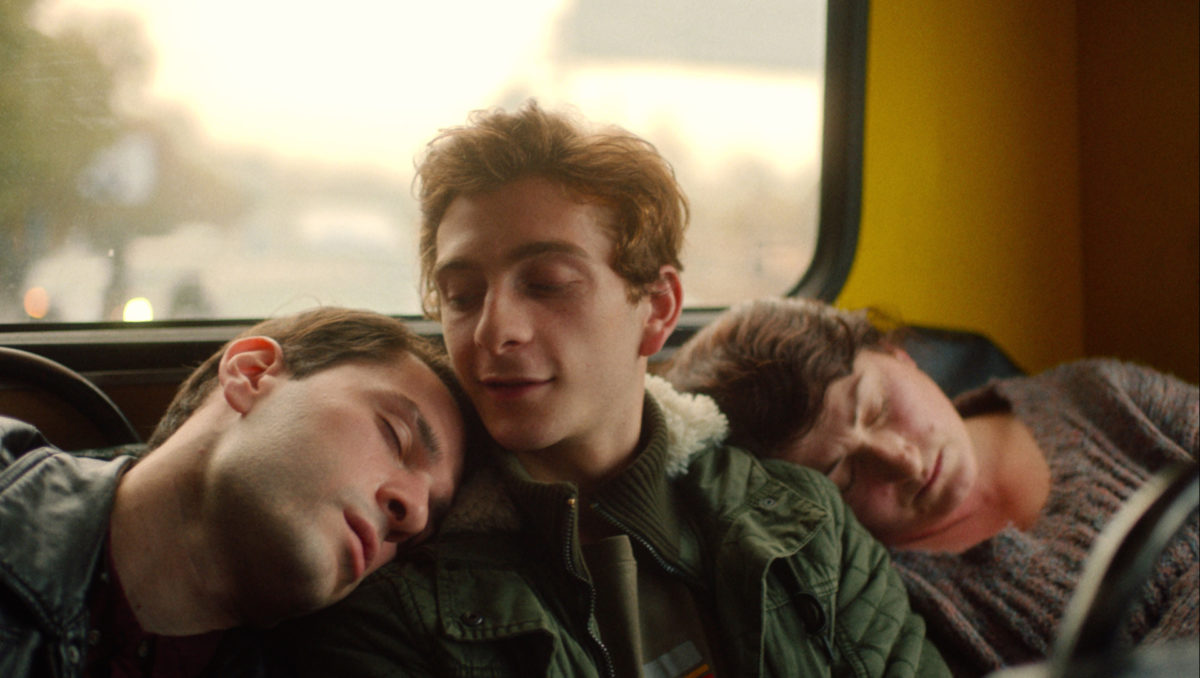
To be a Georgian male is to be masculine—especially in dance. Merab’s (Levan Gelbakhiani) teacher Aleko (Kakha Gogidze) demands that he stand straighter and stronger, a monument that can withstand any blow. While his country’s aesthetic had allowed for a softer tone, conservative tradition prevailed a half century ago to move things back to the rigid separation of gendered movement and the complete erasure of sexuality. How Aleko’s dancers perform becomes a visual metaphor for their nation. It will not be defeated. It will not show weakness. And anyone who dares to refuse giving one hundred percent to that goal can leave. It doesn’t matter how much passion Merab possesses or how many hours he practices. In their eyes he isn’t Georgian. He isn’t even a man. – Jared M. (full review)
Where to Stream: Amazon Prime
Another Round (Thomas Vinterberg)

If you find yourself needing to latch onto an obscure scientific theory to reinvigorate your energy level and live your life as more than a sleepwalking zombie, you’re probably not ready to actually confront the real problem. We know this to be true of the quartet at the center of Thomas Vinterberg’s effective, cathartic drama Druk (known in English as Another Round), since our first impression of Tommy (Thomas Bo Larsen), Peter (Lars Ranthe), Nikolaj (Magnus Millang), and especially Martin (Mads Mikkelsen) is that they have lost their spark. Sexually, intellectually, physically, emotionally—whatever spark you can describe in words, they’ve lost it. Call it a mid-life crisis if you want. Call it evidence for needing a therapist like it is. Or, as they decide, retrieve that long-lost courage at the bottom of a bottle. – Jared M. (full review)
Where to Stream: Virtual Cinemas
The Assistant (Kitty Green)

The silences last a lifetime in The Assistant, written and directed by Kitty Green. Starring Julia Garner as the titular character, the film plays out over one long day at an unnamed independent film studio. Light on dialogue with no real score to speak of, we follow our new assistant as she makes the coffee, cleans the dishes, prints the screenplays, and takes the phone calls for an unrelenting man in the office behind her. – Dan M. (full review)
Babyteeth (Shannon Murphy)

Milla is not the first terminally stricken teen girl to grace a coming-of-age film, nor will she be the last. She may, however, be the most precocious: kitted out in oversized ‘80s woodland animal shirts and Day-Glo colors, and with a revolving cast of hairdos (for obvious reason), she enlivens and emboldens the new film Babyteeth with a punky energy that–try as lesser directors might–is not often seen in such things. Indeed, we’re not kissing Ansel Elgort in Anne Frank’s house anymore, Dorothy. – Rory O. (full review)
Bacurau (Kleber Mendonça Filho and Juliano Dornelles)

The school in the fictional village of Bacurau, located somewhere in the desert hinterlands of north-eastern Brazil, bears the name of one João Carpinteiro. If the throbbing synth track that introduces the opening credits, the film’s glorious widescreen photography, and the narrative’s Rio Bravo-indebted premise weren’t sufficiently indicative, Google Translate helpfully confirms that in English the name does indeed translate to that of the author of Assault on Precinct 13. Credit where credit’s due, as Bacurau owes a considerable debt to Carpenter–while also taking ample cues from another half-dozen genre auteurs–but in terms of complexity and ambition, this furious political allegory co-written and directed by Kleber Mendonça Filho and Juliano Dornelles (the production designer on Mendonça Filho’s previous features) is very much a case of the students outclassing the master. – Giovanni M.C. (full review)
Where to Stream: The Criterion Channel, Kino Now
Beanpole (Kantemir Balagov)
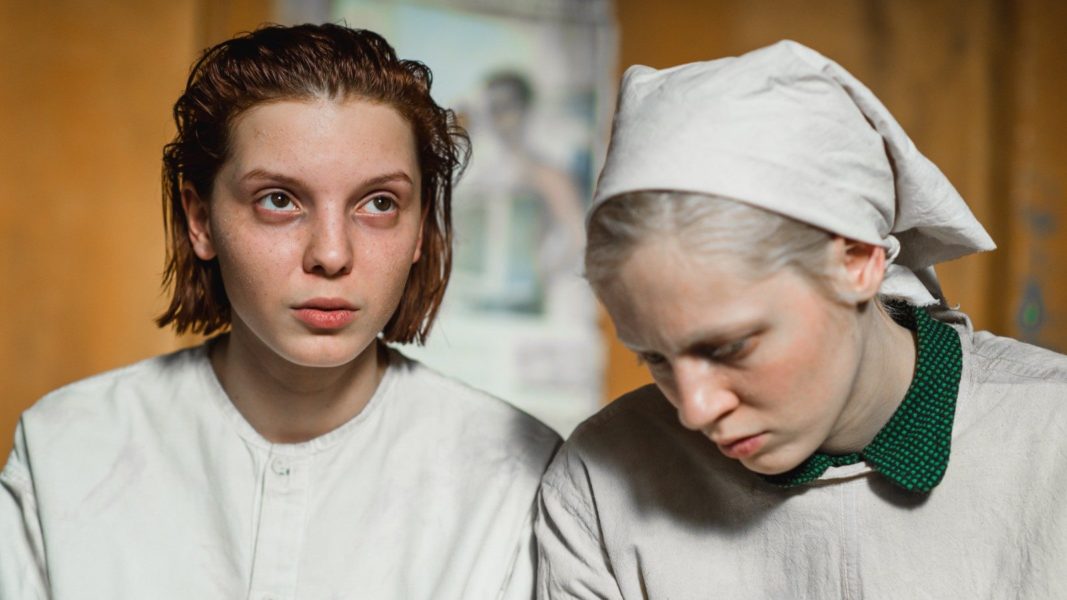
The horrors of war are often told through male-centric narratives. Heroes who go through hell on the battlefield, brothers who sacrifice everything for each other, soldiers who return home scarred for life etc., all of which we’ve seen put on the big screen time and again. But wars are of course collective nightmares, tears in the fabric of history that leave no one–men, women, children–unscathed. This is the premise of Russian writer–director Kantemir Balagov’s second feature Beanpole, a radical relationship drama that examines the trauma of war from a distinctly female perspective. – Zhuo-Ning Su (full review)
Where to Stream: MUBI, Kino Now
Bloody Nose, Empty Pockets (Ross Brothers)

With their latest film Bloody Nose, Empty Pockets, brothers Bill Ross IV and Turner Ross turn their lens on that warmly inviting, idyllically dingy, and endlessly lively microcosm of society: the dive bar. Premiering in the U.S. Documentary Competition section at Sundance, the filmmakers behind Western and Tchoupitoulas once again break the boundaries of such a programmatic box, using a casted ensemble, a scouted location, a vérité style, and the loosest of scripted ideas to explore community, pain, and regrets in America circa 2016—and particularly the unfiltered honesty in which these themes can be conveyed when a ceaseless stream of alcohol is involved. This collection of lost souls and inquiry into their perspective on life results in a tale of profound authenticity and devastating heartbreak. – Jordan R. (full review)
Where to Stream: VOD
Boys State (Amanda McBaine and Jesse Moss)

As we enter a tumultuous election year, Amanda McBaine and Jesse Moss’ extraordinary portrait of a democratic process in microcosm is both a testament to how Washington, D.C. and the rest of the country could achieve bipartisanship as well as a look at what has led to such a fractured political system. – Jordan R. (full review)
Where to Stream: Apple TV+
City Hall (Frederick Wiseman)

In the opening shot of Frederick Wiseman’s National Gallery, a man polishes the floor in a room walled with masterpieces. Writing about the scene for MUBI recently, the critic Joseph Owen noted that “the politics of this institution exist in a subterranean passage: between its low-paid maintenance jobs and its disreputable oil sponsorships.” Petrodollars aside, it’s an observation that speaks in some way to any number of Wiseman’s films: that the souls of the institutions he so dedicatedly depicts are neither the heads on top, the public face or the multitude of working parts below but something malleable and indefinable in the middle. The director’s latest is documentary epic, a sprawling 4.5-hour study of Boston’s City Hall and its various satellite entities, that once again goes in search of that middle—although for once with an uncharacteristic scent of subjectivity. – Rory O. (full review)
Where to Stream: Virtual Cinemas
Collective (Alexander Nanau)
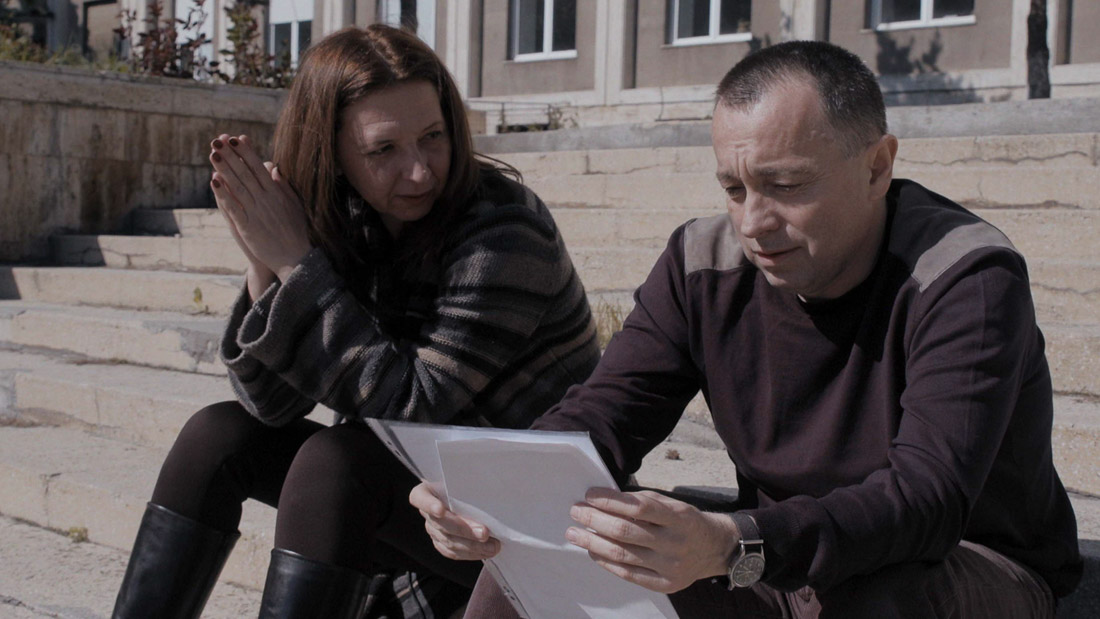
Part journalism procedural and part depressing exposé, Alexander Nanau’s verité documentary Collective examines the institutional corruption at the heart of the Romanian health care sector. The existence of such organized malfeasance will come as no surprise to anyone who has seen any of the Romanian New Wave films that touch on the country’s nightmarish bureaucracy. But, really, any sentient human being living in the western world won’t be blindsided by the fact that for-profit industries cuts corners or that government officials outright lie to the press about various wrongdoings. Many Americans, currently living through an epistemological crisis of staggering proportions, are now slowly inured to such ugly realities. – Vikram M. (full review)
Where to Stream: Virtual Cinemas, VOD
Corpus Christi (Jan Komasa)

This is exactly what director Jan Komasa and writer Mateusz Pacewicz do with their lead character Daniel (Bartosz Bielenia) in Corpus Christi. Based in part on real events, this twenty-year-old is about to be released from his detention center on parole. He’ll go to a reclusive town to work at a sawmill and maybe even build a decent life if he stays clean, but the potential he holds removed from the mark of “ex-con” is rendered moot. Despite finding God during his imprisonment and showing a desire to pursue the vocation, Polish law forbid former criminals from wearing the cloth. The one thing that can save him from the destructive cycle of drugs, alcohol, and sex he quickly restarts is that which he cannot have. – Jared M. (full review)
Where to Stream: The Criterion Channel, Film Movement Plus
Da 5 Bloods (Spike Lee)
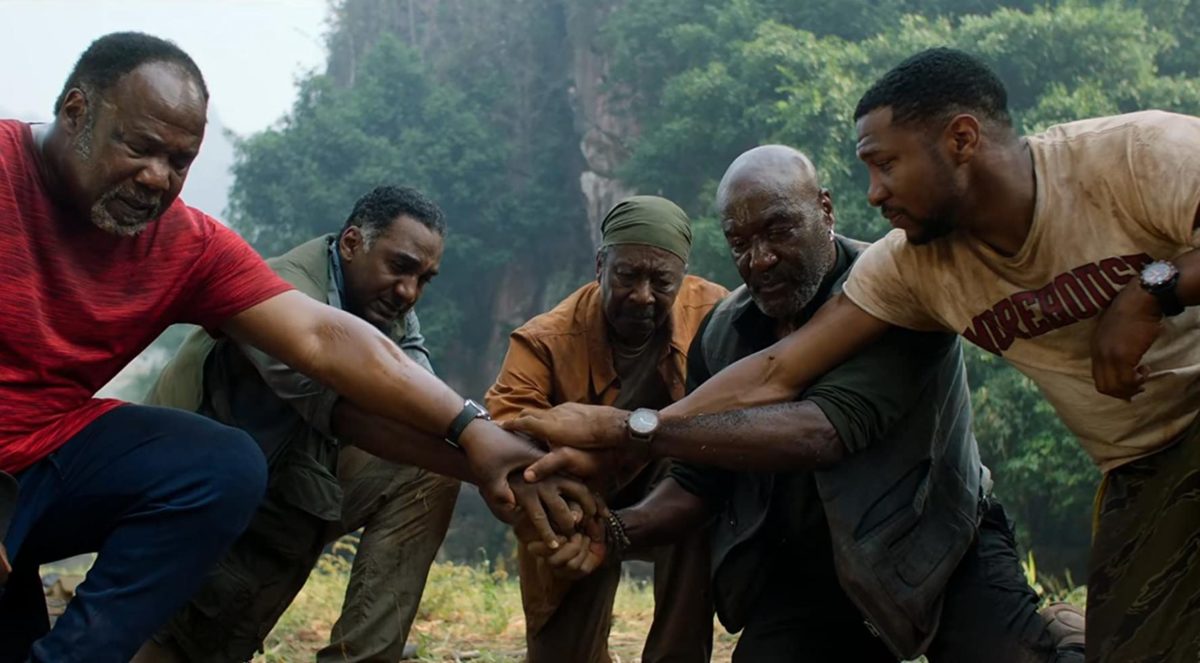
Following up his Oscar-winning BlacKkKlansman, Spike Lee is in full-on maximalism mode for his Vietnam-set adventure Da 5 Bloods, employing three different aspect ratios, multiple shooting formats, a variety of narrative timelines, themes, and tones, as well as capturing the struggle of racial equality via archival footage. It’s a thoroughly engaging, entertaining, excessive, and troubling look at how America has cast aside veterans and African Americans alike–in this case, a group constituting both. For more, listen to our in-depth, three-hour discussion. – Jordan R.
Where to Watch: Netflix
DAU (Ilya Khrzhanovsky)
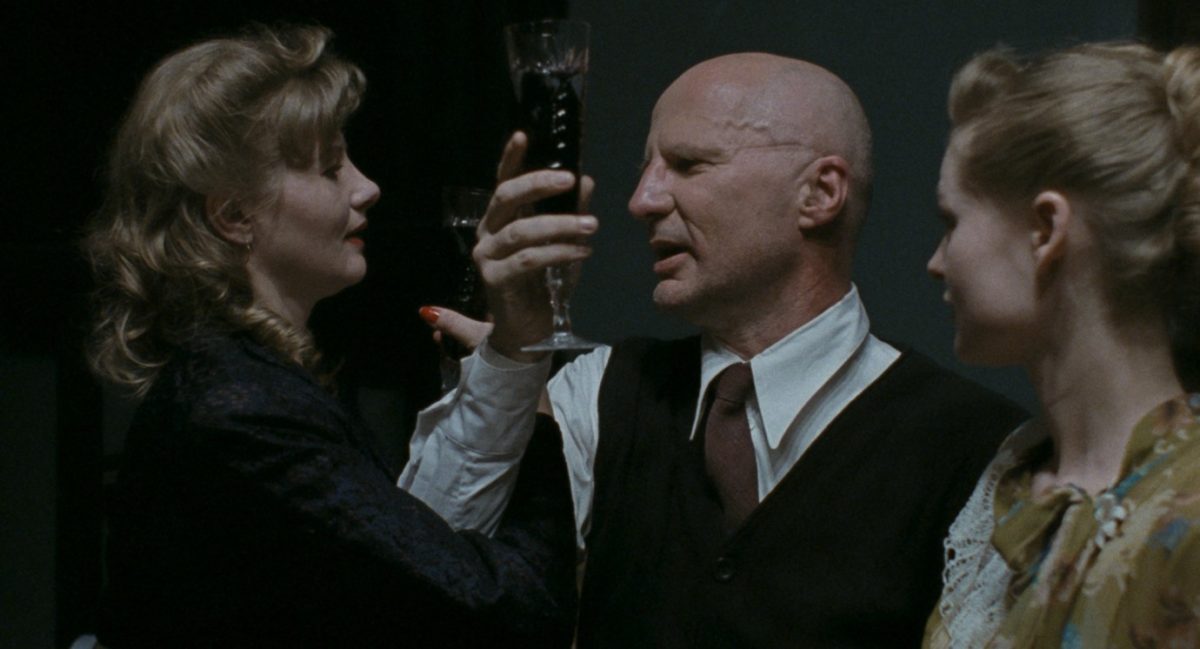
One of the most ambitious art projects known to mankind was finally unveiled last year. Ilya Khrzhanovsky’s DAU explores the life of Nobel Prize-winning Soviet scientist Lev Landau, but it’s from the standard biopic. With over 700 hours of footage captured with 35mm cameras, the project spanned three years with a massive cast, all living in a working town. Early last year in Paris, DAU was made public to the world as part of an exhibit, which included a selection of 12 films as well as other experiences meant to immerse the attendee in this totalitarian world. A year later, at this year’s Berlinale Film Festival, the first theatrical releases were unveiled, DAU. Natasha and DAU. Degeneration, which our writer Rory O. Connor found to be as astonishing as they were shocking. Now, in a surprise release, they have been made available online, followed by what looks like other films in the series. Continue reading.
Where to Stream: Official Site
Dick Johnson Is Dead (Kirsten Johnson)

There’s only one universal truth shared amongst all humans: one day, we will die. For some, this cold, uncomforting reality can lead to paralyzing anxiety as we think of who and what we’ll leave behind. For others, it’s a call to action to live every day with receptive empathy towards others and a curiosity to explore what the world has to offer. As already proven in her masterful directorial debut Cameraperson, Kirsten Johnson clearly falls into the latter category. With her brilliant follow-up Dick Johnson Is Dead, leave it to the director to create an exploration of death that is fun, bittersweet, and bursting with colorful imagination. In her portrait of her (spoiler warning!) still-alive father, she carries the same self-reflexive wit and vision as her prior film but takes it in a whole other direction. – Jordan R. (full review)
Where to Stream: Netflix
Divine Love (Gabriel Mascaro)

After sprinkling magical realist touches in his prior film Neon Bull, the director’s imagination is once again deployed with full force here. With it being only eight years in the future, his predictions are rightfully minor but artfully woven into the environment for maximum realism. He imagines a city that is more industrialized (and polluted), with factories crowding the once-pristine beach vistas. In a dystopian fashion, the population is also more strictly controlled as metal detector-esque machines detect any unregistered fetuses–a constant reminder for Joana of her infertility. In her job at a notary for the government, she specializes in divorce documentation, which directly conflicts with her religious beliefs. She perpetually wishes of a hopeful reunion for her clients, attempting to convince them of the spark their relationship once had and to get back together, which is in direct conflict of the government’s separation of church and state. – Jordan R. (full review)
Where to Stream: Virtual Cinemas
Driveways (Andrew Ahn)

It isn’t easy making a film like Driveways stand out. We have walked these streets so often before. We know the twists and turns. We expect the darker corners. Yet stand out is exactly what Driveways does. The movie is a bittersweet coming-of-age story about the intergenerational, interracial friendship of an 83-year-old veteran of the Korean war and an Asian-American boy just about to turn 9, who arrives into town with his single mother and considerable emotional baggage. – Rory O. (full review)
Education (Steve McQueen)
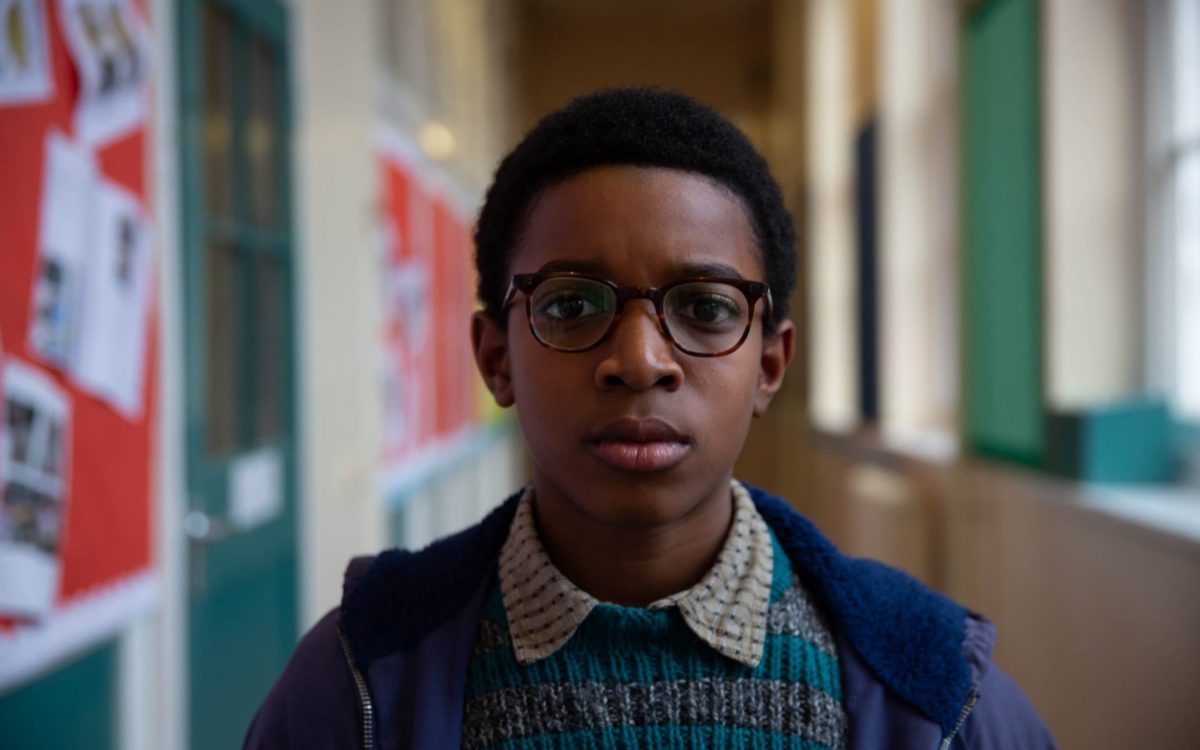
In Education, the fifth and final film in Steve McQueen’s Small Axe anthology, Kenyah Sandy’s young, bespectacled face commands the frame. His character, Kingsley Smith, experiences plenty of adolescent strife at the hands of a negligent education system that shunts him off to a “special” school for the “educationally sub-normal” (ESN) based on poor results from a culturally biased IQ test. He wears a vulnerable, frightened expression whenever he’s powerless to combat cruel, indifferent authority figures or mistaken for lazy when he just needs guidance. McQueen and photographer Shabier Kirchner focus on Sandy’s face partly because he represents an entire generation of Black British children who were in danger of being left behind by colonialist institutions. If it weren’t for a group of crusading West Indian women who actively sought out these children and their parents, they would have been doomed to a fate of perpetuating a cycle of poverty and ignorance. Sandy’s countenance embodies all of those who were swept up by the worst of history but ultimately saved by individuals who found a way to rewrite it. – Vikram M. (full review)
Where to Stream: Amazon Prime
Fire Will Come (Oliver Laxe)

Laxe knows how to create a grounded, taut drama with a real sense of time and place. His opening sequence, a foggy, ethereal nighttime scene where diggers bulldoze giant Eucalyptus trees is infused with foreboding in a tangible natural terrain that towers over human activity. This is a region exposed to the elements, where people submit to nature as if it’s a greater power. Fire Will Come is, it should be no surprise, a prophetic title, and that’s part of the tension that Laxe carefully ratchets up. This is a stately film, sometimes to a fault, (even at 85 minutes some scenes seem overly drawn out) that builds slowly from silence to a crescendo, a natural disaster for whom Amador will become something of a sacrificial lamb. – Rory O. (full review)
Where to Stream: Metrograph’s Virtual Cinema
First Cow (Kelly Reichardt)
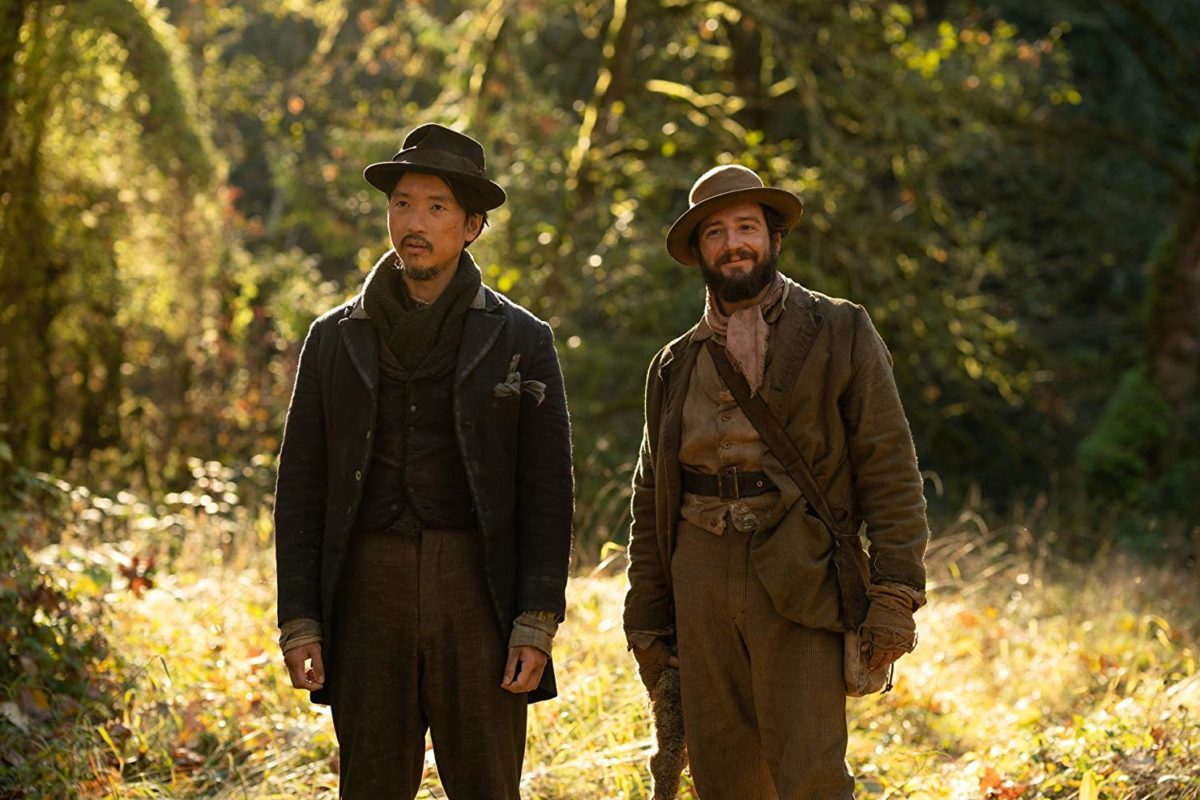
In First Cow, Kelly Reichardt carves out space for friendship and generosity amidst an otherwise selfish landscape. Set in the 1820s Pacific Northwest, a familiar realm for the Oregon-loyal Reichardt, the film’s twin protagonists are atypically sensitive souls, both towards each other and their environments, and yet they remain hyper-conscious of the cruelty that enervates within their community. Reichardt probes at the limitations of self-preservation as a life philosophy, even though it’s basically required to survive such a hardscrabble existence. What’s the purpose of survival if life doesn’t incentivize assisting your fellow man? – Vikram M. (full review)
Fourteen (Dan Sallitt)
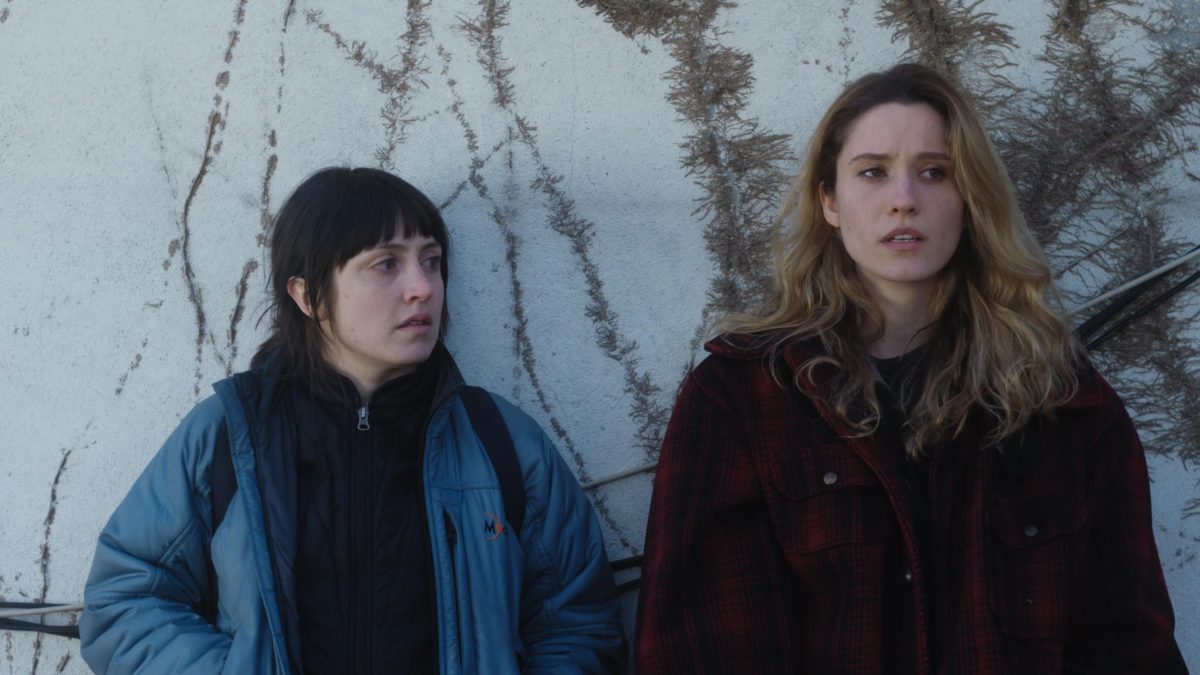
There is an uncomfortable, universal wound being picked at in Dan Sallitt’s latest film, regardless of which of its characters the viewer relates to more. The question is this: can we ever outgrow those close friends we looked up to in our younger years or are we destined to forever carry that complex around? This conundrum is what gnaws at the heart of Fourteen, an acutely observed and quietly expansive little film from the New York director of The Unspeakable Truth (another film with uncomfortable ideas about pseudo-siblinghood). This new feature concerns the alpha-beta (as it is perceived by the characters) relationship of two young women living in Brooklyn as, over the course of a decade or so, the beta friend adjusts to the pains and realizations of growing up and growing apart. – Rory O. (full review)
Where to Stream: Projectr
Free Time (Manfred Kirchheimer)
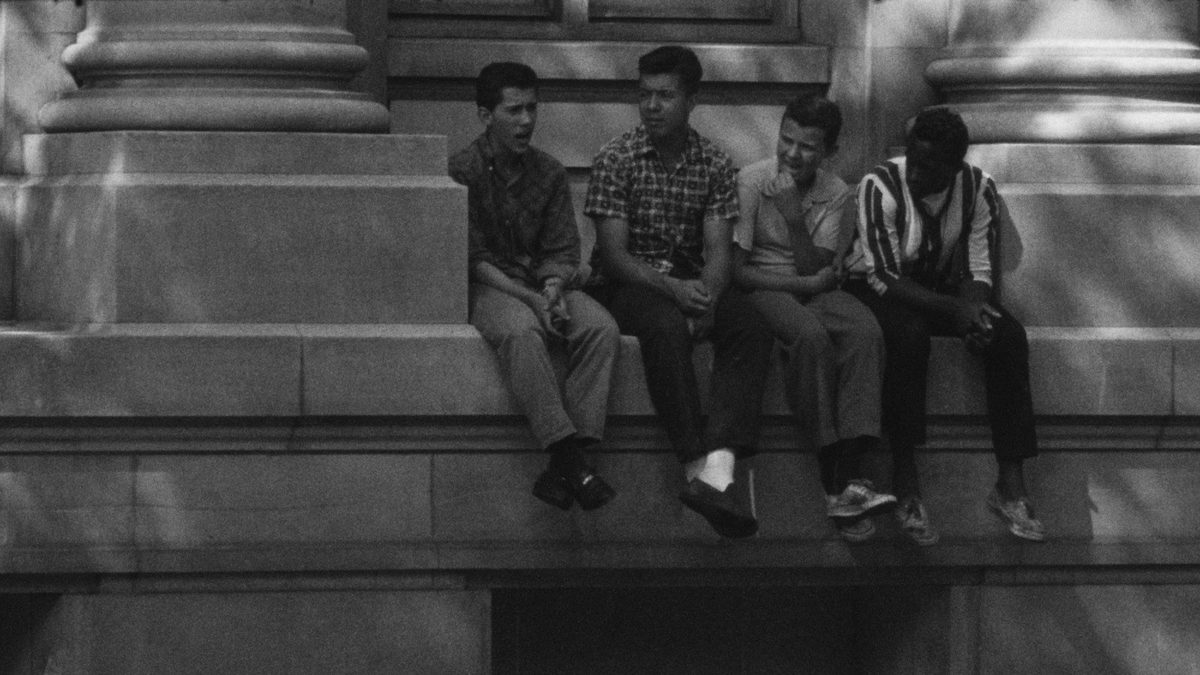
Kircheimer put the film together some 60 years after compiling the material, but Free Time doesn’t perform the duties of a nostalgic travelogue. It lets itself find a journey by avoiding a destination, a wanderer without purpose who finds humanity because it’s impossible not to. Kirchheimer visits several neighborhoods in Manhattan without labeling or contrasting them with his visit to Queens. That the film arrives during a time when New York City is undergoing another period of reinvention, healing, and repurposing isn’t only a gift that reminds us the beauty that makes us stay here is still there. It’s in the details of in the facade of a building we see but have never stopped being in awe of, or the way in shadows reflected on a bridge tell a story to someone who can see the shadow but not the person creating it. – Jose S. (full review)
Where to Stream: Projectr
Heimat Is a Space in Time (Thomas Heise)
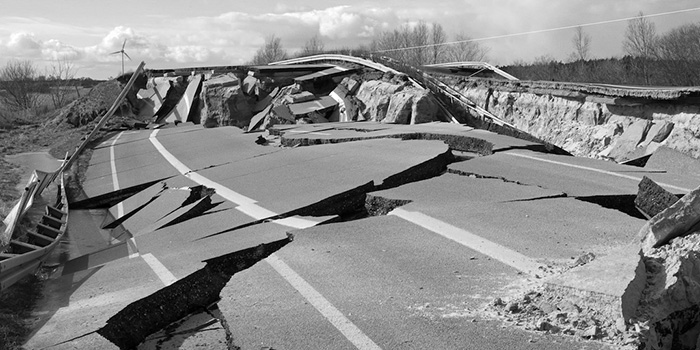
How much of our ancestry is tied to the history of the places we call home? While some of us would probably answer “None,” we’d be wrong. Just because your family tree was lucky enough to exist on the periphery of major historical moments as bystanders doesn’t mean you haven’t been impacted by wars, tragedies, inventions, and art in ways that defined your choices and subsequently the choices of your children. Why did my grandfather immigrate to America from Lebanon (then part of Syria) when he did? How did my father not getting drafted to Vietnam influence my sister’s birth and my own? Where does 9/11 fit in as an Arab American who never had an ethnic option on forms to check besides “Caucasian” previously? History defines us. With that said, however, some are embedded much deeper than others. One example is German documentarian Thomas Heise. – Jared M. (full review)
Where to Stream: OVID.tv
Hill of Freedom (Hong Sangsoo)

One of Hong Sangsoo’s greatest works, Hill of Freedom is a showcase par excellence in how the director adds complexity to a structure that seems simple on the surface: a woman reads a man’s letters about his adventures in Japan, only to have them fall on the ground, and thus his story is now told out of order. The playful conceit of the 67-minute film finds ample room to explore comedy, heartache, cultural identity, and more. Like most Hong films, it plays as a breath of fresh air, and even moreso during this time of immense unease. – Jordan R.
Where to Watch: Projectr
His House (Remi Weekes)
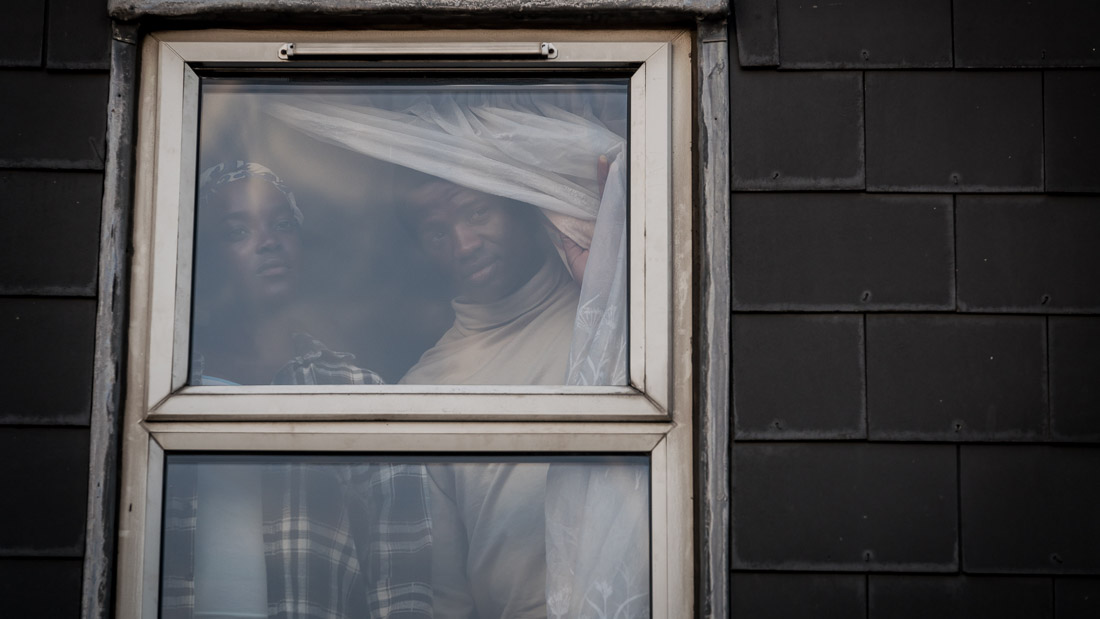
As Rial (Wunmi Mosaku) sits in a hospital, a doctor (Emily Taaffe) takes her blood and notices marks on her skin. One is on her arm; the other, the right side of her neck. The patient explains that her South Sudanese village had two tribes and, due to her not being part of just one, she wears both their respective symbols. Then her eyes lightly focus and she explains: “I survive by belonging nowhere.” There’s a lot of scary stuff going on in Remi Weekes’ feature debut His House, but the most thorough one is the idea that belonging and thriving are mutually exclusive. – Matt C. (full review)
Where to Stream: Netflix
House of Hummingbird (Bora Kim)
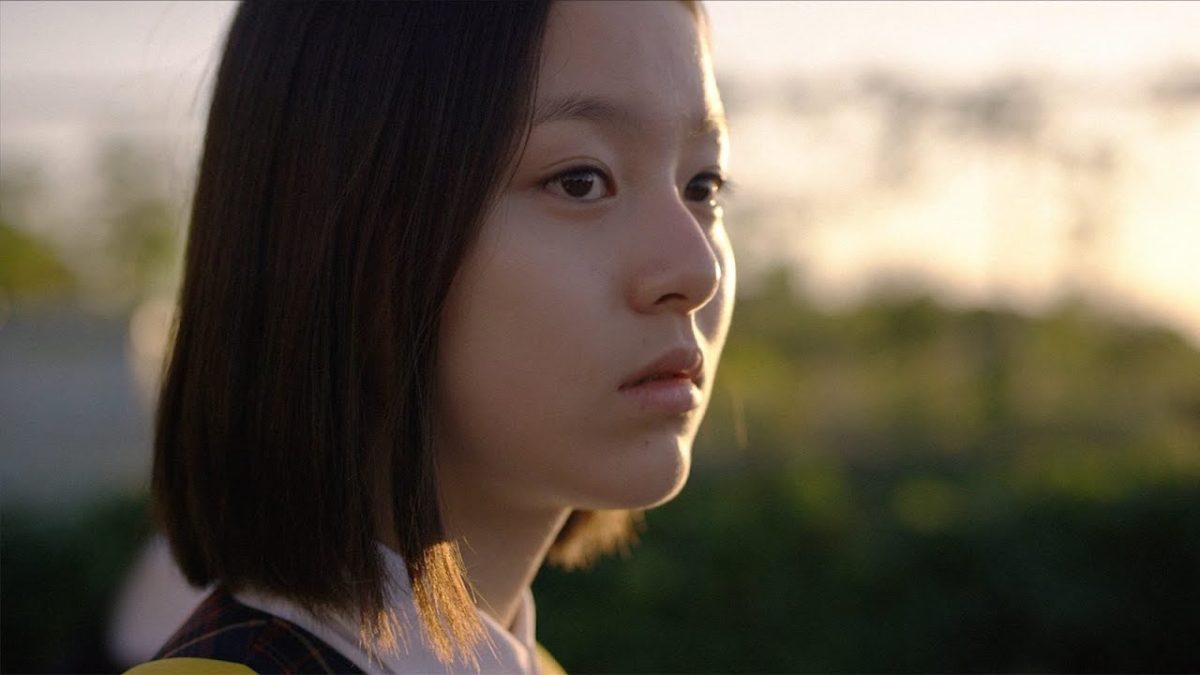
Bora Kim’s tender, carefully observed debut feature––which was a Berlinale prize-winner––made its way to Virtual Cinemas earlier this summer, but I recently caught up with it as it arrives on VOD. Set in Seoul in 1994 and following a girl’s coming of age, the film is beautifully spare of high drama and over-complicated twists and turn, rather deeply focusing on how the smallest of interactions can make an imprint on a developing mind and the ripple effect decisions can have in various relationships. It’s sturdy, strong introduction for the director, and we look forward to whatever she’ll be doing next. – Jordan R.
Where to Stream: VOD
I’m Thinking of Ending Things (Charlie Kaufman)
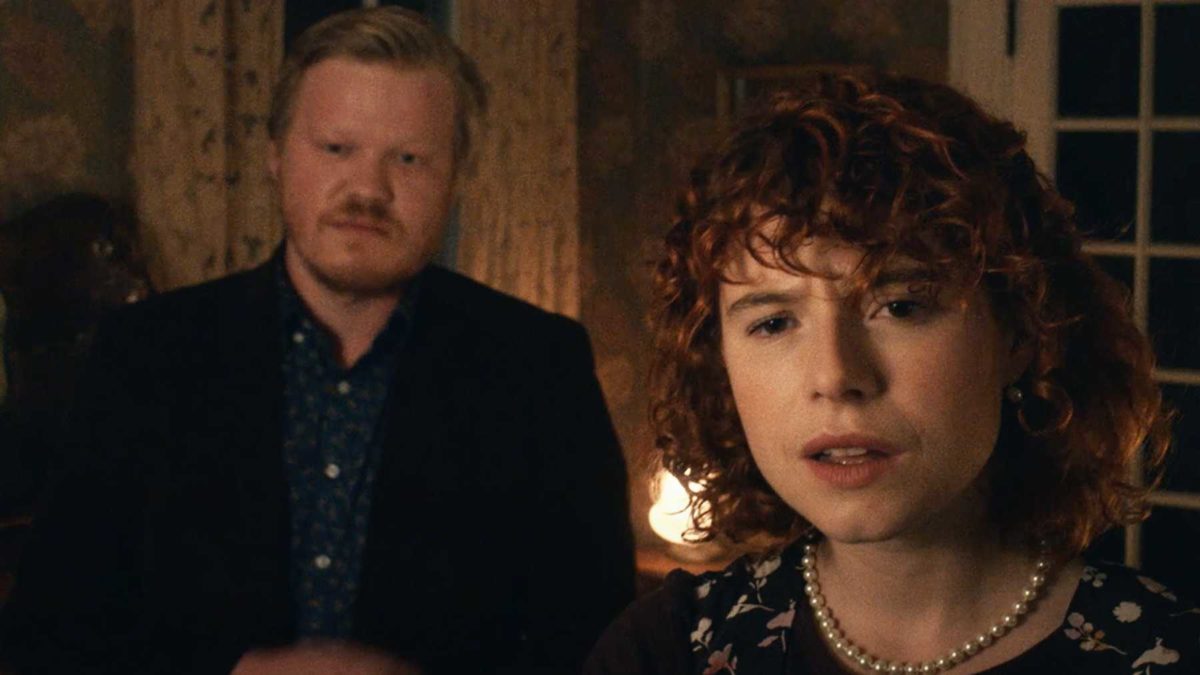
I’m Thinking of Ending Things is a puzzle box of a movie, one I’m still desperately trying to prise open, but one of its many layers is a metatextual comment on the concept of “originality” itself. The film is a curious case: an utterly original work made up almost entirely of unoriginal elements. Kaufman keeps a lot of Reid’s stream of consciousness dialogue (or inner monologue) intact, and almost all of Kaufman’s additional dialogue is about other works of art: a poem by Eva H.D., a review by Pauline Kael, references to David Foster Wallace, Robert Zemeckis, Billy Crystal, Tolstoy, and Oklahoma! Kaufman even plays with different genres, from horror to rom-com to ballet to musical theatre to animation—it’s a joy to watch and a complete mindfuck. It feels like Kaufman is unspooling his personal anxieties about the pressure to be original when so much of what an artist creates is just a collage of different influences. – Orla S. (full review)
Where to Stream: Netflix
The Invisible Man (Leigh Whannell)
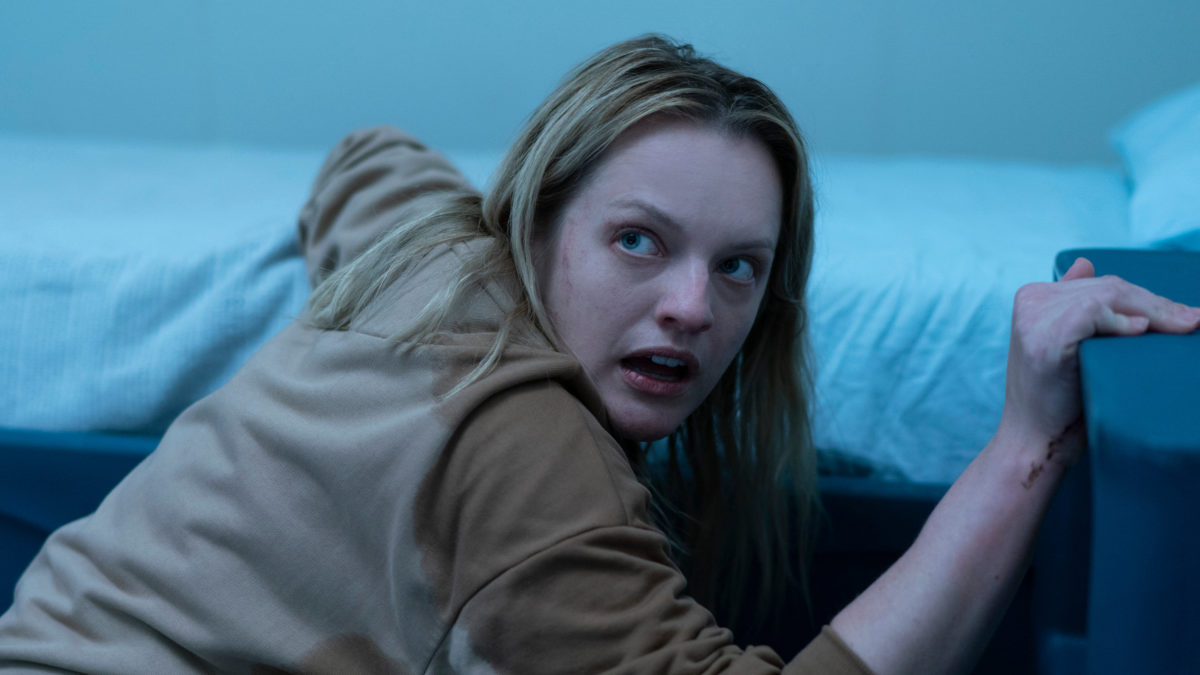
The innate horrors of the unseen are given fresh life in The Invisible Man, a reinvention of the H.G. Wells’ novel that was first brilliantly adapted by James Whale in 1933. This revamp from Blumhouse and Universal finds writer and director Leigh Whannell altering and evolving techniques he used to great effect in the B-movie mania of his last feature, Upgrade, while also taking a classic story in bold directions. Here, he channels his unique lexis toward a study of abuse, paranoia, and trauma, resulting in a grounded and paced horror film that nevertheless reaches maniacal heights. – Mike M. (full review)
I Was at Home, But… (Angela Schanelec)

Angela Schanelec’s films make extensive use of ellipses, and narratives often branch out to new characters without warning, but far from being challenging or cryptic, her work is remarkable for its humanity. Her newest film, I Was at Home, But… shares, in her words, “the deep kindness and mercy” present in the films of Yasujirō Ozu, including I Was Born, But… from which Schanelec’s film takes its name. From the barest elements—questions of camera placement, light, and performance—emerges a symphony of human interaction that quietly brings the viewer into its space without ever forcing answers onto them. This is a contemplative cinema, and one whose rewards multiply with time and thought. – Forrest C. (read his full interview)
Where to Stream: MUBI
Kajillionaire (Miranda July)
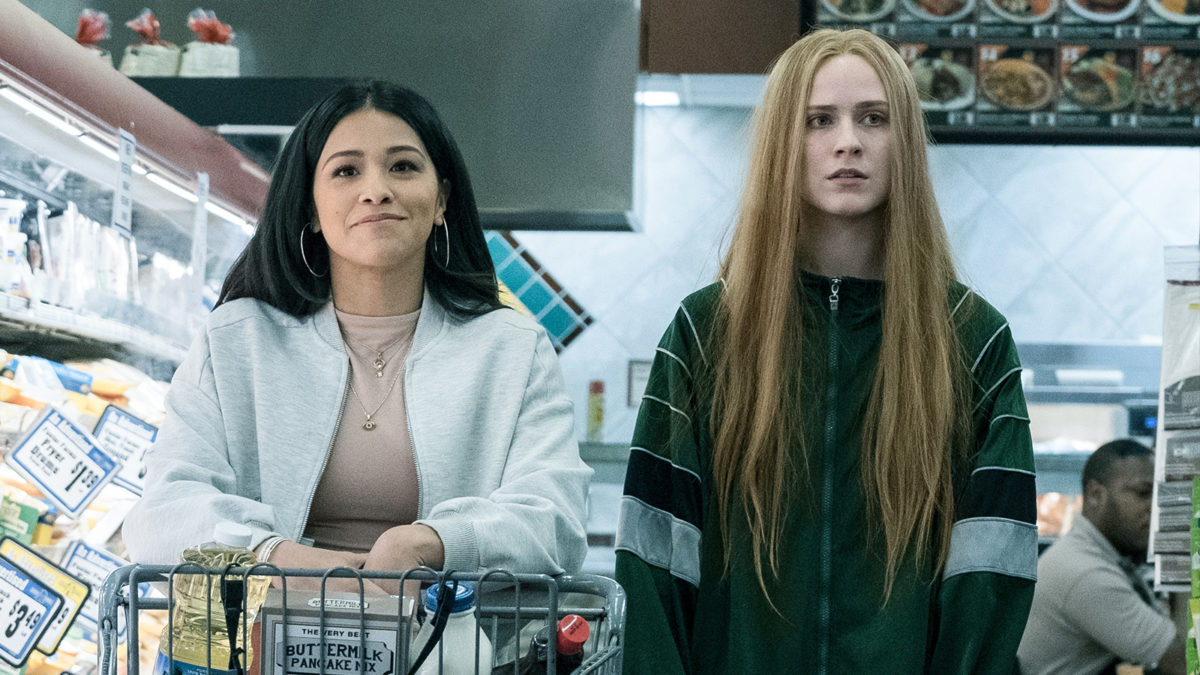
If one closes their eyes and imagines what a con movie in the hands of Miranda July might look like, I still don’t think you’d get anywhere close to what Kajillionaire actually ends up being. Then again, it’s precisely those creative impulses for the unexpected that has made the writer-director’s work so special. With her third feature, she crafts a singular story about the bonds of family and what happens when those bonds are tested–or never existed in the first place. More abstract than her previous films–and therefore, I imagine, off-putting to many–the steady, surreal, and sweet flashes of brilliance in this one-of-a-kind story are enough to sustain interest during some of the more tedious passages. – Jordan R. (full review)
Where to Stream: VOD
Let Them All Talk (Steven Soderbergh)
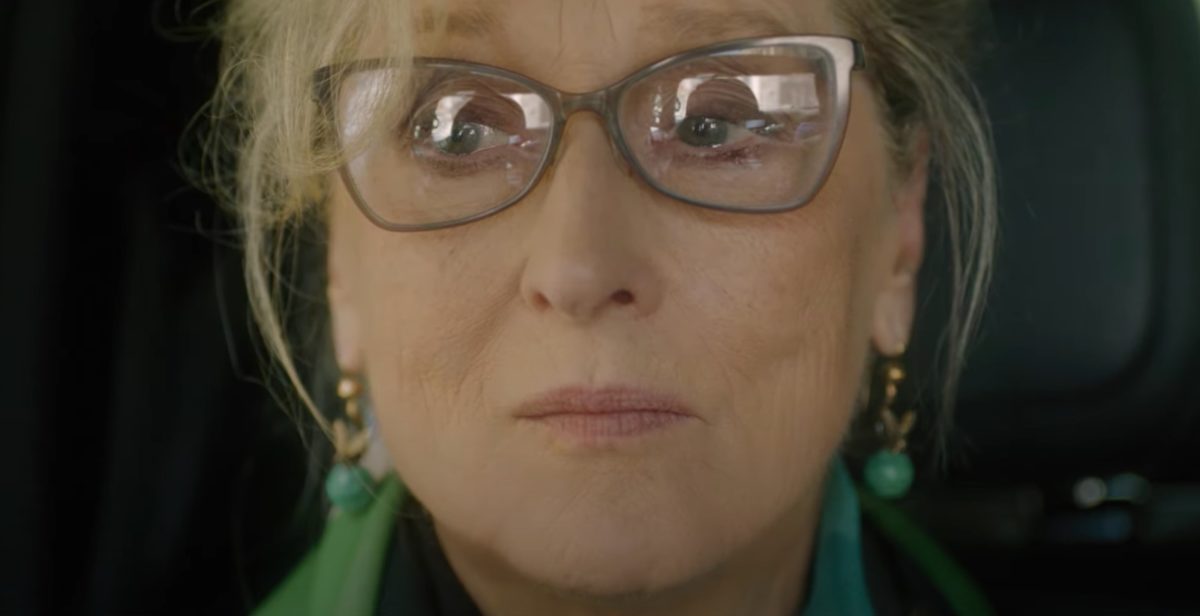
Steven Soderbergh is a film-process savant, pushing himself constantly, creating new ways to make and share his art. Whether it be experimenting with the means of distribution (Logan Lucky), using smartphones for the entirety of production (High Flying Bird, Unsane), or creating a miniseries in which the viewer could help solve the mystery (Mosaic) through an app on their phone, he’s obsessed with new technology pervading our lives and how that affects the medium in which he so comfortably operates. With a thinly outlined script (courtesy Deborah Eisenberg), completely improvised, and shot in two weeks aboard a boat headed for the UK, Let Them All Talk is a welcome entry in the auteur’s continued experimental canon. – Erik N. (full review)
Where to Stream: HBO Max
Liberté (Albert Serra)

Finally, evil in cinema is back! That was the impression running through the mind of this writer during all 132 minutes of Albert Serra’s Liberté, a film so thoroughly dedicated to bad, evil vibes–and yes, the beauty inherent in them–that it feels like something approaching a howl in the wind against the notions of good taste. – Ethan V. (full review)
Where to Stream: MUBI (free for 30 days)
La Llorona (Jayro Bustamante)

Ever since Hannah Arendt coined the term “the banality of evil” in her 1963 book Eichmann in Jerusalem, it’s been a phrase oft-used in an attempt to describe how seemingly rational humans can do truly awful things. One recalls Joshua Oppenheimer’s documentary The Act of Killing or Chris Weitz’s Operation Finale in recent years. Director Jayro Bustamante wades in these same waters with La Llorona, an effective slow-burn that uses thriller tropes to explore the lingering scars of the Guatemalan Civil War. – Dan M. (full review)
Where to Stream: Shudder
Lovers Rock (Steve McQueen)
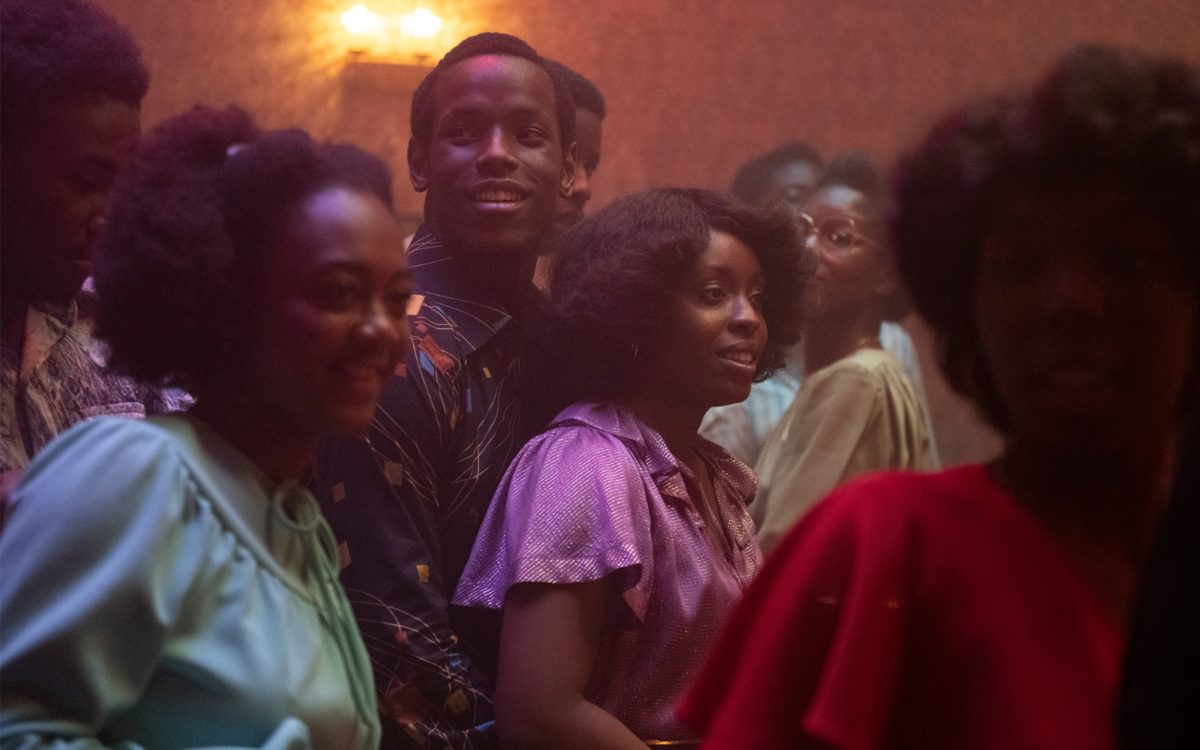
An appropriately buoyant opening-night choice for this year’s New York Film Festival, Lovers Rock chronicles an underground London blues party, a space where Black Brits could cut loose and dance safe from white harassment. Director Steve McQueen presents the house party as a mostly utopic place, one maintained and policed by community committed to the ideals of spiritual liberation. The film’s fluid, handheld camerawork, courtesy of Shabier Kirchner, foregrounds positive vibes, detailing every inch of the tight dance floor and basking in the glow of unencumbered joy. These gatherings represent a release from a socially and politically marginalized group, but that subtext merely pulses underneath Lovers Rock, contextualizing the film without ever overwhelming it. The organic community portrait ebbs and flows to a beat of its own making. – Vikram M. (full review)
Where to Stream: Amazon Prime
Mangrove (Steve McQueen)
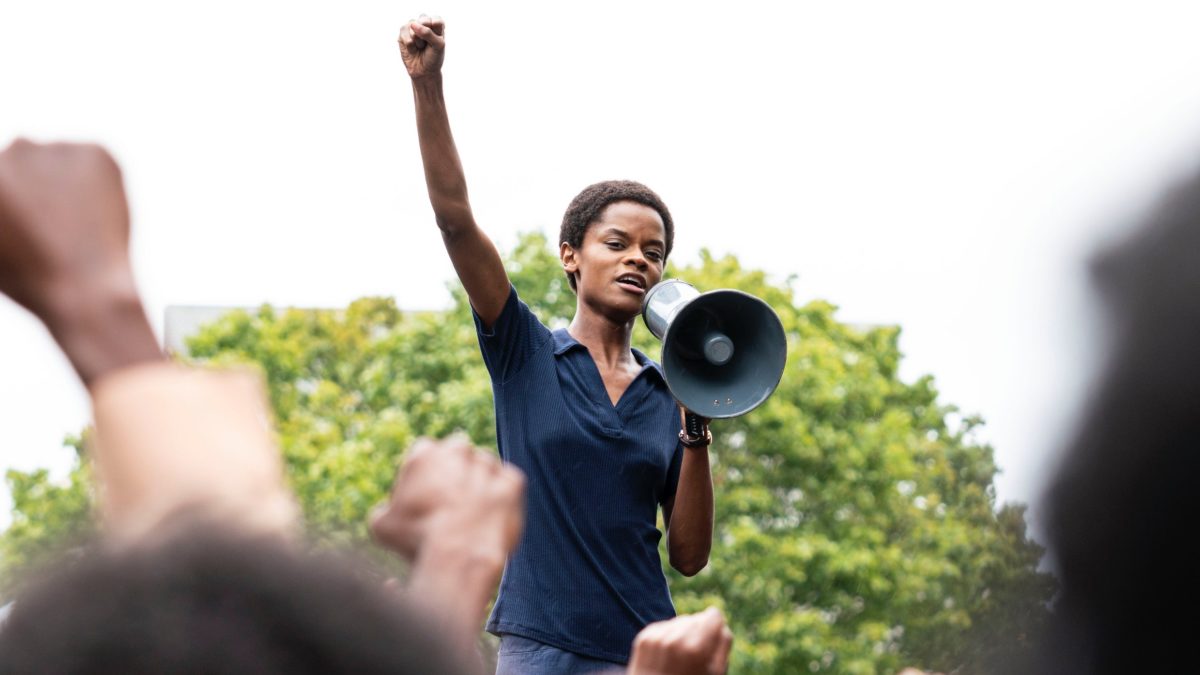
Mangrove covers the incidents precipitating, and including, the trial of the Mangrove Nine, a group of British Black activists unduly tried for inciting a riot during a demonstration against the Metropolitan Police. The Mangrove, a West Indian restaurant in the Notting Hill area, was a crucial space for the surrounding Black community, and was the meeting place for many prominent intellectuals and Black Panther activists, like Darcus Howe (Malachi Kirby), Altheia Jones-LeCointe (Letitia Wright), and Barbara Beese (Rochenda Sandall). The Metropolitan Police sought fit to constantly harass its owner, Frank Crichlow (Shaun Parkes), and repeatedly raid the restaurant under suspicion of gambling, prostitution, and drug use. When a protest against the police turned violent, Crichlow and other community members find themselves on trial defending their right to exist against a colonialist system all too prepared to classify them as thugs. – Vikram M. (full review)
Where to Stream: Amazon Prime
Mank (David Fincher)
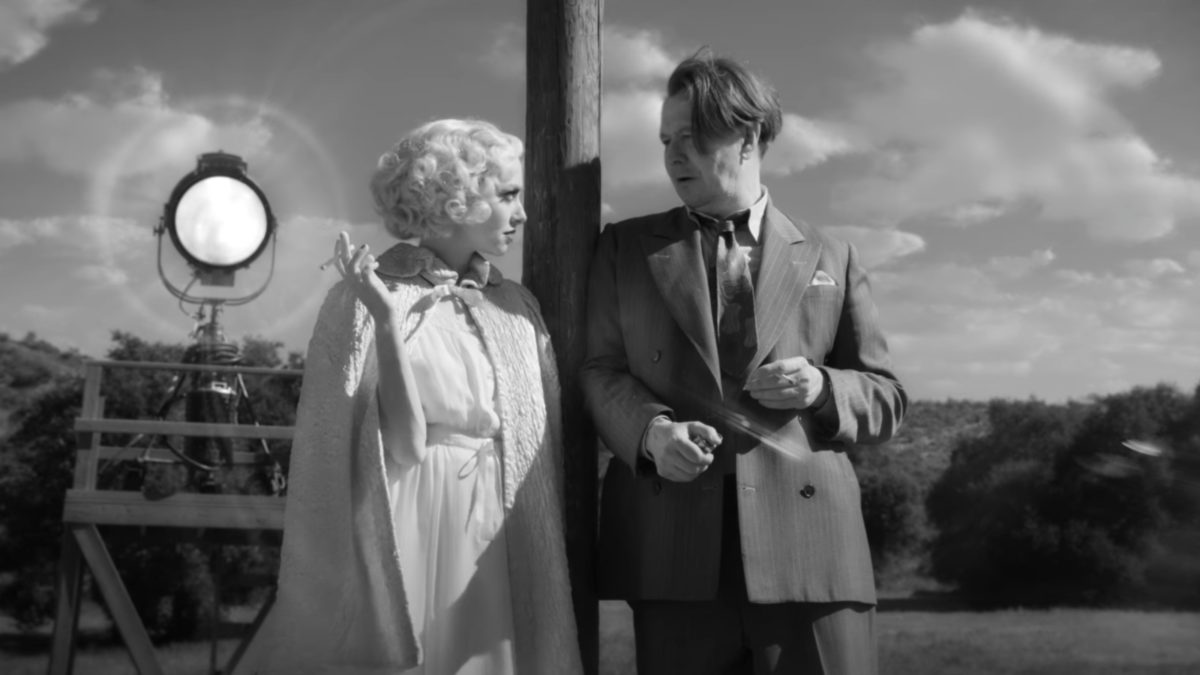
The great Mank wars have already begun. While our review from Nick Newman was negative, a new David Fincher film is still worth seeking out and as, one will see in our forthcoming year-end features, it’s proved to be a divisive entry into his filmography.
Where to Stream: Netflix
Martin Eden (Pietro Marcello)
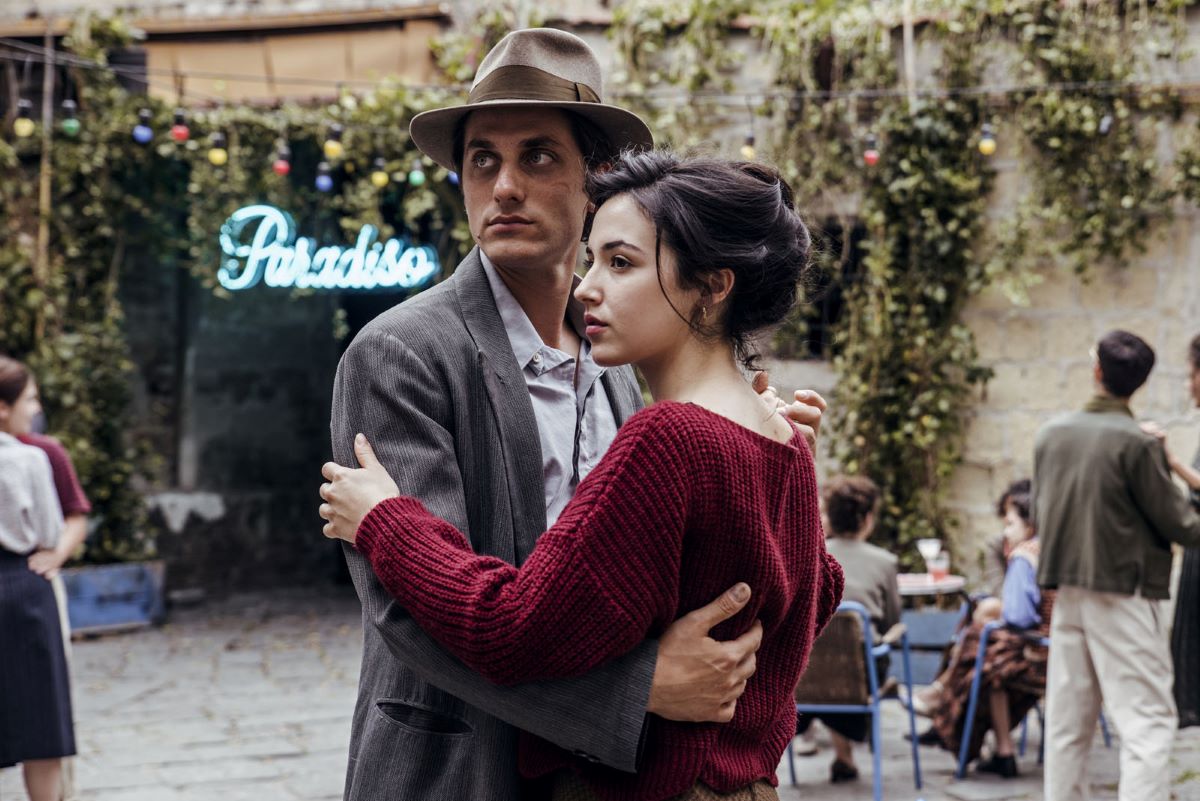
American novelist Jack London was an active proponent of socialism, his writing offering self-reflexive deconstructions of their values within distinct, incongruous, futuristic worlds, temporally far-flung but with technology and attitudes contemporaneous to the turn of the century. These qualities are prevalent throughout Martin Eden, Pietro Marcello’s fantastic second fiction feature that stands as a spellbinding synthesis of both London’s speculative ideas and Marcello’s documentarian instincts, capturing the clairvoyance and spirit of London’s writing via Marcello’s sensibilities as a predominantly non-fiction filmmaker. – Kyle P. (full review)
Where to Stream: Kino Marquee
Ma Rainey’s Black Bottom (George C. Wolfe)
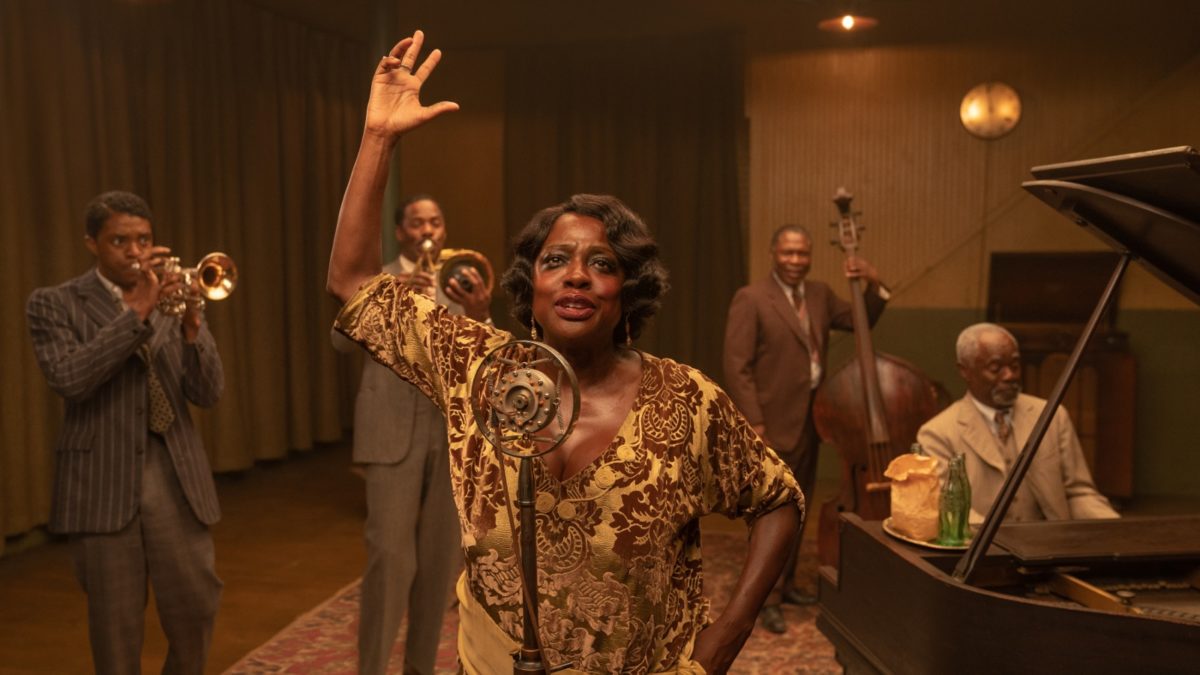
Ma Rainey’s Black Bottom director George C. Wolfe and screenwriter Ruben Santiago-Hudson may not bring the same cinematic eye that Denzel Washington infused in his 2016 adaptation Fences, but their take on August Wilson’s 1984 play, tackling the 1920s in Wilson’s decade-spanning “Pittsburgh Cycle,” is a faithful one. Featuring standout performances by both Wilson stalwart Viola Davis as the titular Ma and Chadwick Boseman as her trumpet player Levee, the transition from stage to screen is a compelling one A reliably stoic actor in his sadly truncated career, Boseman steals the film, showcasing a twitchy high-wire act rarely seen in his previous work. He’s not only the best thing in the film, which also features Davis at her most flamboyant, but it’s the best work he’s ever done, a towering achievement in his final film role. – Christian G. (full review)
Where to Stream: Netflix
Mayor (David Osit)

The reign of bigotry and terror from Donald Trump and his administration can often take the form of a myopic view for those in the United States, witnessing on a daily basis how the soon-to-be-ousted leader is further corroding the sharp political divide in his own country. However, the reverberations of his decisions, of course, have a global impact, and David Osit’s riveting new documentary Mayor shows how the President’s heedless actions have exacerbated long-held strife in Ramallah, the Palestinian city in the central West Bank located mere miles from Jerusalem. The ”city in transition” is led by Musa Hadid, a humble Christian mayor who deeply empathizes with his community as they are controlled by the Israelis and surrounded by their encroaching settlements. The threat against their livelihood reaches more peril when Trump officially declares Jerusalem as Israel’s capital in 2017, leaving Palestinians attempting to survive without a place to truly call home. – Jordan R. (full review)
Where to Stream: Virtual Cinemas
Miss Juneteenth (Channing Godfrey People)
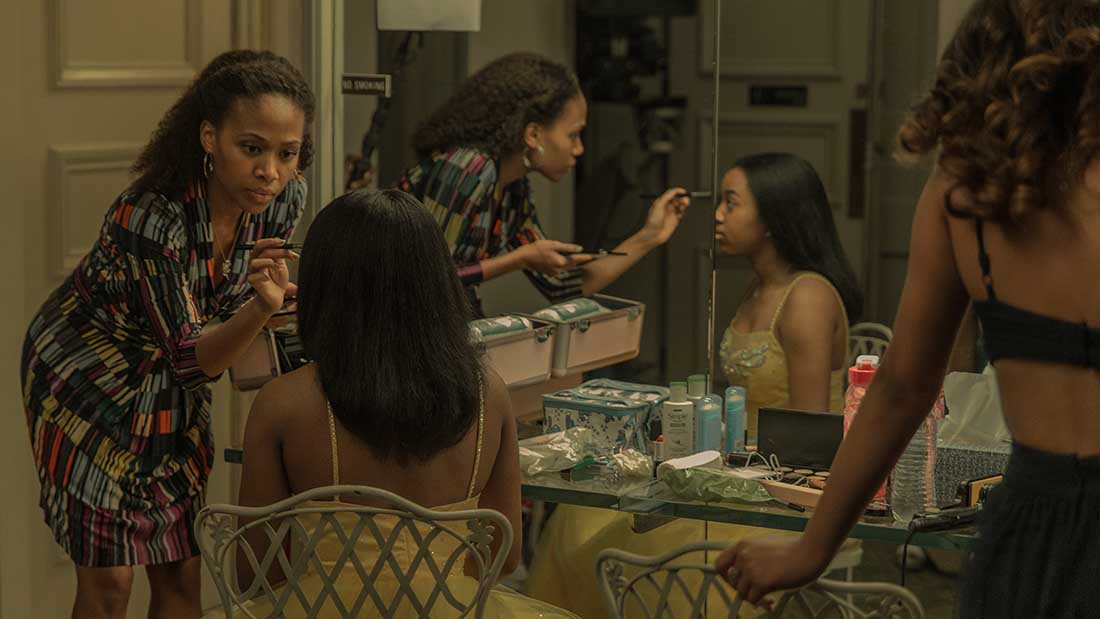
A unique and authentic film that captures African American life in deep in heart of Fort Worth, Texas, Channing Godfrey People’s Miss Juneteenth is a warm and wise picture that traces a fractured mother-daughter relationship against the backdrop of an annual pageant. The film veers into familiar material as a mother, Turnouise Jones (Nicole Beharie), presses her 15-year old daughter Kai (Alexis Chikaeze) to follow in her footsteps and compete for a scholarship that will enable her to leave the small world she knows. It appears as if Kai has plans to do so, with or without Turnouise’s nudging as she shows little to no interest in the completion. – John F. (full review)
The Nest (Sean Durkin)

One of Sundance’s most stunning break-outs in the past decade was Martha Marcy May Marlene, Sean Durkin’s remarkably crafted, psychologically deft exploration of an upstate New York cult starring Elizabeth Olsen. After nearly a decade, the director finally returns to the festival with his feature follow-up The Nest, another exquisitely mounted drama that revels in letting minute character details slowly become elucidated as Durkin puts trust into his audience to pick up the pieces along the way. In peeling back the layers of a fractured family and the soulless drive for wealth, the emptiness underneath is patiently revealed, so much so that it backs itself into a heavy-handed corner. – Jordan R. (full review)
Where to Stream: VOD
Never Rarely Sometimes Always (Eliza Hittman)
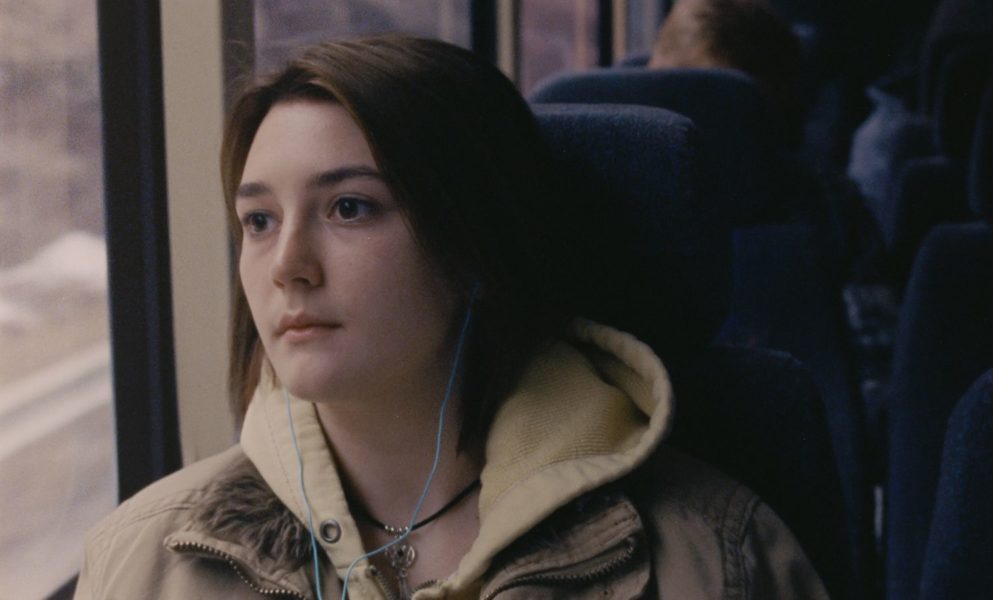
In a world where the hot-button issue of abortion has been a divisive point of political pull in which the majority of those in power will never have to grapple with the decision their entire lives, how do we shift our perspective to find the empathy towards those that are directly affected by when, how, and who can undergo the procedure? We can start with Never Rarely Sometimes Always, Eliza Hittman’s deeply moving chronicle of a teenager’s struggle to terminate her pregnancy. By steering clear of overtly political messages and naturalistically centering our perspective solely in the mindset of Autumn (Sidney Flanigan) through this journey, I can’t imagine a soul that won’t be inspired to give more careful consideration to those in similar situations. – Jordan R. (full review)
On the Record (Kirby Dick and Amy Ziering)

Kirby Dick and Amy Ziering’s conventional but powerful new documentary On the Record is as much about the personal struggle of Drew Dixon and others in telling their stories of horrifying sexual misconduct at the hands of hip-hop legend Russell Simmons as it is about how the voices of black women have been marginalized throughout history, leading to a reticence to speak out, especially in these last few years. It’s an emotional gut-punch of a film that will have one appalled that Simmons continues to thrive in the industry and enraged at the systemic limitations endured by black women, resulting in a lack of career advancement and a fear of societal rejection if they go against their own culture. – Jordan R. (full review)
Where to Stream: HBO Max
On the Rocks (Sofia Coppola)
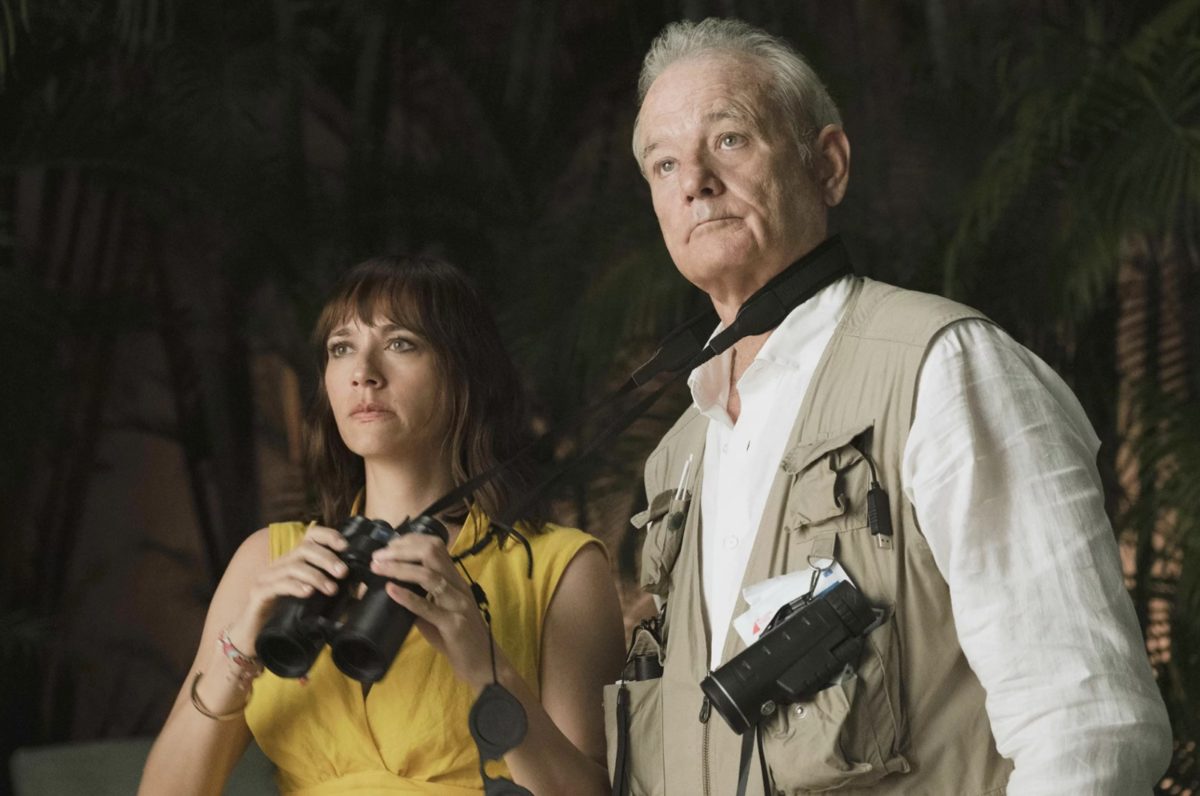
A well-modulated vision of the fight against encroaching malaise or mere trifle dressing itself up? Depends on the scene. But trifles have their place and auteurs should be allowed their fun, which On the Rocks deploys over 90 minutes kind enough not to feel like a waste of anyone’s talents or time. An easy point to argue, perhaps, but Sofia Coppola’s greatest gift is making the precise look simple. Its many jaunts through New York City are tethered to Laura (Rashida Jones), a writer whose cushy life with husband Dean (Marlon Wayans) and two children gets shaken by suspicions of infidelity. Laura’s aloof father (Bill Murray, so clearly written into the part of an older socialite named Felix) decides to turn her worries into a game of spying and occasional goose-chasing fueled by rakish boredom and, at one point, intimations of darker connections to Black Cube-like services that track Dean’s movements and credit card. – Nick N. (full review)
Where to Stream: Apple TV+
Palm Springs (Max Barbakow)

When Bill Murray repeatedly wakes up on the same morning in Groundhog Day, the radio blares Sonny and Cher’s “I Got You Babe.” It’s a winking reminder of what’s missing in his life, an auditory motivation to change his circumstances and escape his cyclical prison. When Andy Samberg wakes up on the same morning in Palm Springs, it’s his cheating, airhead girlfriend Misty (Meredith Hagner) that forces his eyes open. She’s a cold reminder of the relationship he wants to leave—except in his time loop, he’s given up on escaping at all. – Jake K. (full review)
Where to Stream: Hulu
Possessor (Brandon Cronenberg)
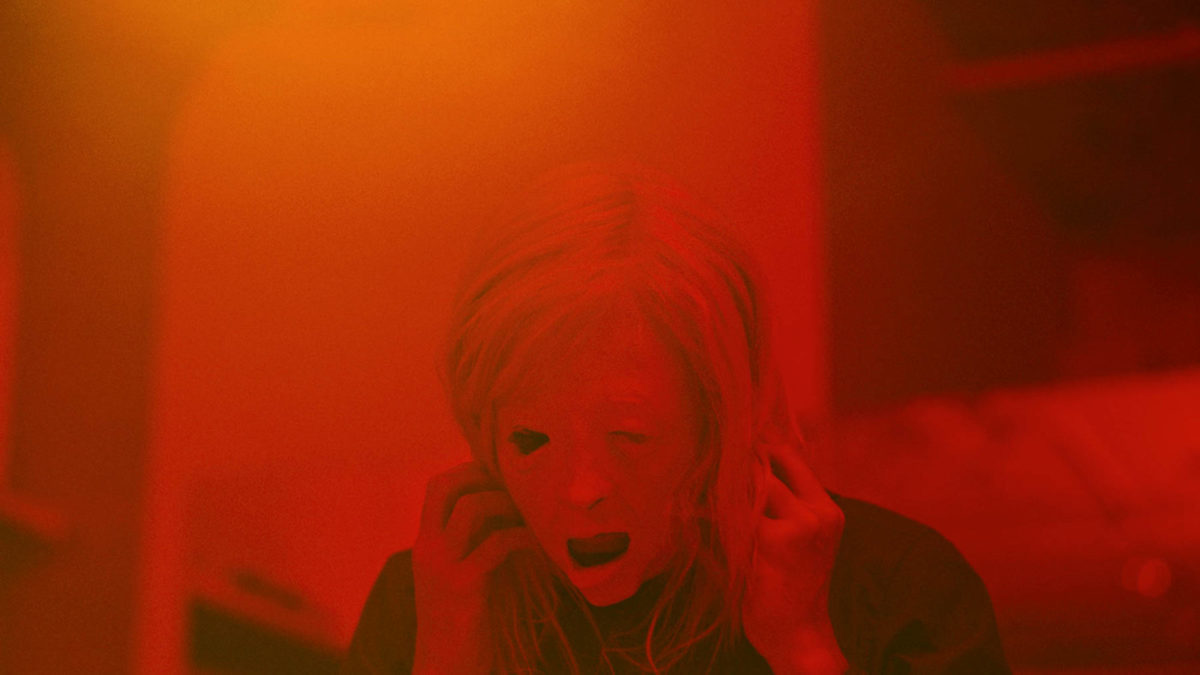
The almost wordless prologue to Possessor Uncut boldly establishes Cronenberg’s skill at provocative, compelling visual storytelling. From the very first scene, he challenges us to look away: a woman named Holly (Gabrielle Graham) stares at herself in the bathroom mirror and calmly sticks a needle into her brain (and yes, we see it in full detail). She turns up the dial of a machine attached to the needle, which puts her through intense pain, and then turns it down, which relieves it. We’re left wondering what the hell is going on––and eager to find out––as she returns to her job waitressing for an expensive party and then, out of the blue, stabs one of the guests repeatedly. You’d think she was relishing his murder if it weren’t for the fact that her face remains completely expressionless. – Orla S. (full review)
Where to Stream: Amazon
The Shadow of Violence (Nick Rowland)
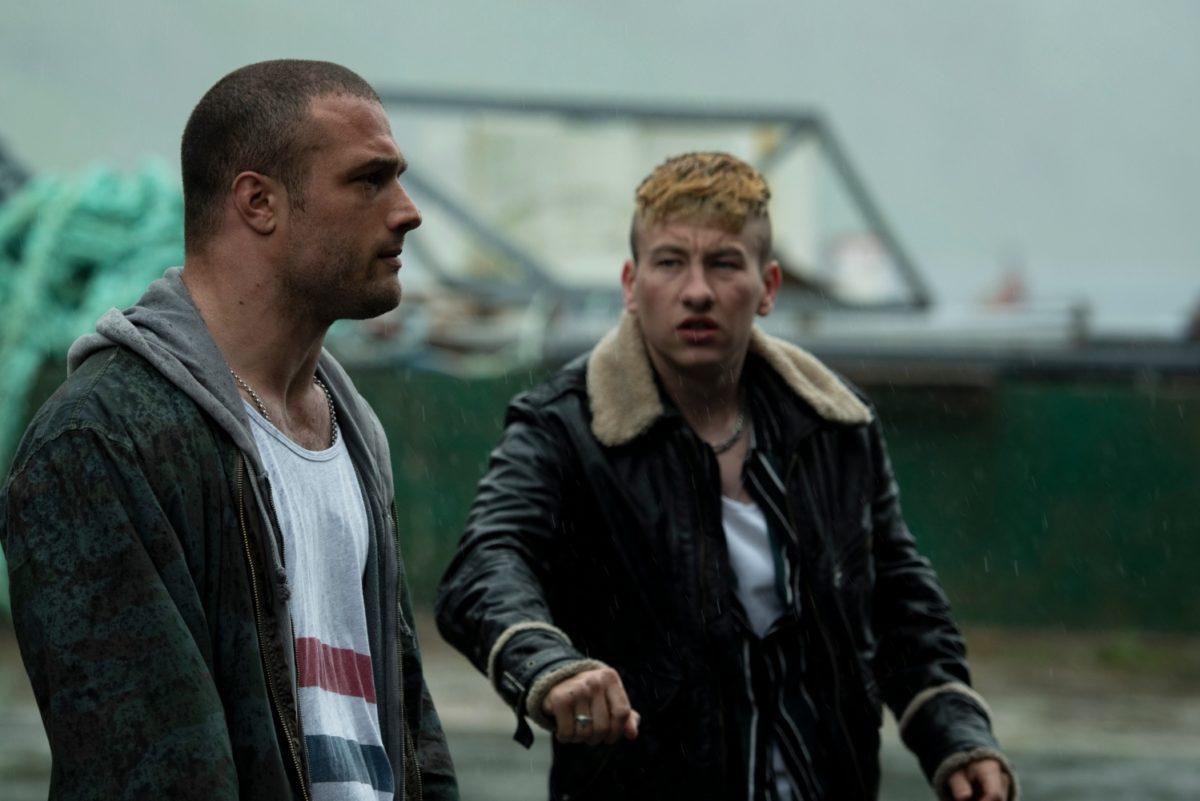
Going under the title Calm with Horses when it premiered at TIFF last fall, Nick Rowland’s new drama starring Barry Keoghan and Cosmo Jarvis is now known as The Shadow of Violence. Jared Mobarak had high praise for it, saying in his review, “I’ve already mentioned Jarvis—who expands upon his breakout turn in Lady Macbeth—but I don’t want his delivering one of the year’s best performances to be diminished. It’s a role that could have easily been ruined by angst-fueled mumbling and frustration without the necessary heart to earn empathy. He instead lets us know about the pain inside and the never-ending struggle to be good that appears less winnable each and every day. Arm is a man whose purpose was stripped away and reclaimed by monsters doing everything possible to also steal his conscience.”
Where to Stream: VOD
She Dies Tomorrow (Amy Seimetz)

In any other time and in any other place, She Dies Tomorrow would be a lucid and unsettling film. Screened in the height of a global pandemic, it is difficult to watch without immediately emphasizing the uncertainty, as well as the certainty, that radiates from and beyond the frame. The characters know they’re going to die, and once they know that, it feels inevitable. Amy Seimetz’s haunting and puzzling sophomore feature beings with a verbally violent break-up and quickly morphs into a film about contagion and paranoia. It also briefly veers into absurd comedy when things come to a head at a birthday party where everyone wishes after the fact they could have engaged in social distancing. – John F. (full review)
Shirley (Josephine Decker)

After getting attention on the festival circuit with her back-to-back first features Thou Wast Mild and Lovely and Butter on the Latch, director Josephine Decker deservedly expanded her audience with Madeline’s Madeline, a genuinely thrilling, endlessly imaginative look at the creative process as well as how mental illness influences artistic expression. With Shirley, she returns to similar themes in an entirely different era while continuing the same inventive, breathless style, even if this time around the narrative arc is a bit more straightforward. – Jordan R. (full review)
Where to Stream: Hulu
Sound of Metal (Darius Marder)
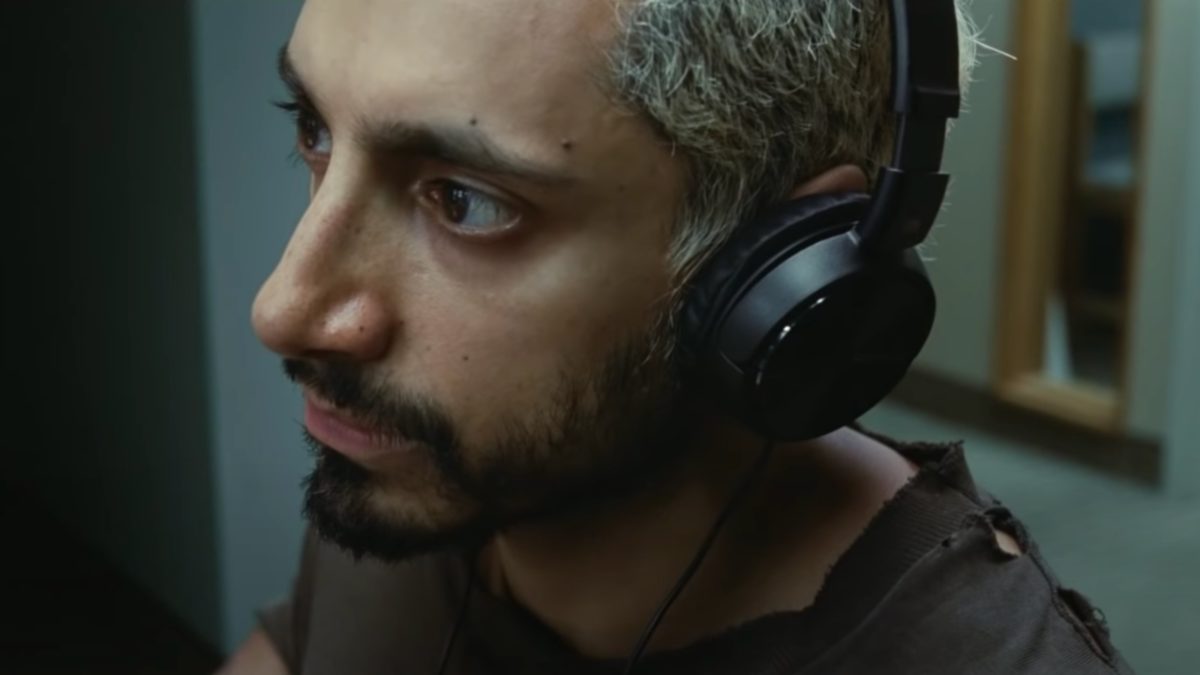
Sound of Metal opens with Riz Ahmed’s Ruben sitting at a drum kit while guitar distortions deafen us. Eventually, Olivia Cooke’s Lou starts screaming as his sticks connect for a steady beat until all hell breaks loose. We’re in this venue with them, the in-close camerawork proving Ahmed’s lessons paid off because he is in a groove and rocking out (not that he needed help on the second part considering his rap career as Riz MC and one half of Swet Shop Boys). With line drawn tattoos covering his chest, bleach-blonde hair, and that screaming, you’re probably assuming the after show will consist of booze and drugs before the visuals cut to a new day of health shakes and eggs in an RV. Appearances can be deceiving. – Jared M. (full review)
Where to Stream: Amazon Prime
Spree (Eugene Kotlyarenko)
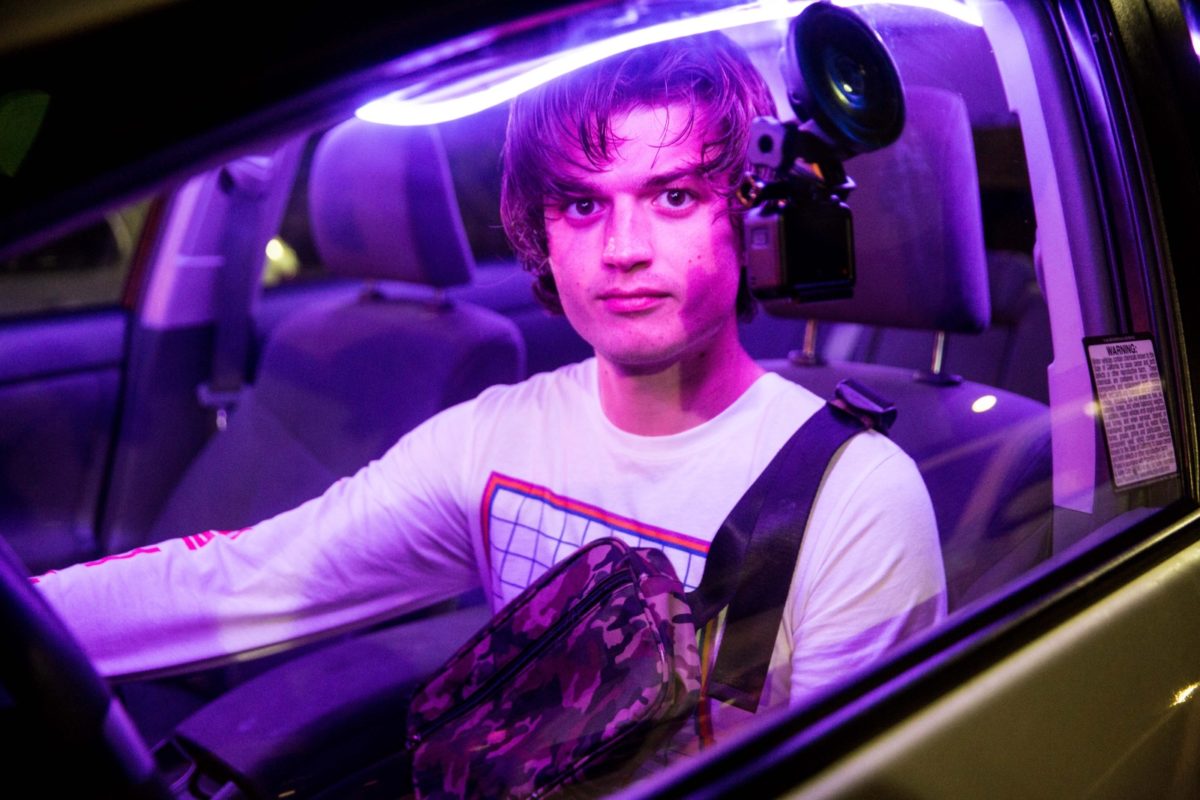
If you go on Kurt Kunkle’s Instagram, you will find stories filled with “pull yourself up by your bootstraps” American happy talk. Kurt leans in, and mostly fails, at living social media meritocracy’s “fake it till you make it” ethos. Whereas social media elites show off their good fortune then go out and live their lives, poor, working-class guys like Kurt scrounge up good vibes, in every embarrassing form, to gain followers (he calls them “Kurties”)––all in hopes of climbing the social media ladder. What he finds at the top is the basis for Eugene Kotlyarenko’s Spree, an equal parts terrifying, thrilling, and satirical look at how social media can warp the mind. – Joshua E. (full review)
Swallow (Carlo Mirabella-Davis)

Hunter (Haley Bennett) has never had control over her life. She’s tried her hardest to claim some, however, by giving away her love. She gave it to a mother who treated her like an afterthought compared to her siblings, a career in art that always found itself to be just out of reach, and the man (Austin Stowell’s Richie) she walked down a matrimonial aisle towards despite his only ever seeing her as a prize—a possession for a shelf of conquests someone in his socio-economic sphere needs to prove successful. As every projection of her love was met by indifference and/or irritation, it ate at her resolve to believe it was possible to become whole. Numbed to their apathy, Hunter’s compulsion to feel changed course. – Jared M. (full review)
Where to Stream: VOD
Tenet (Christopher Nolan)
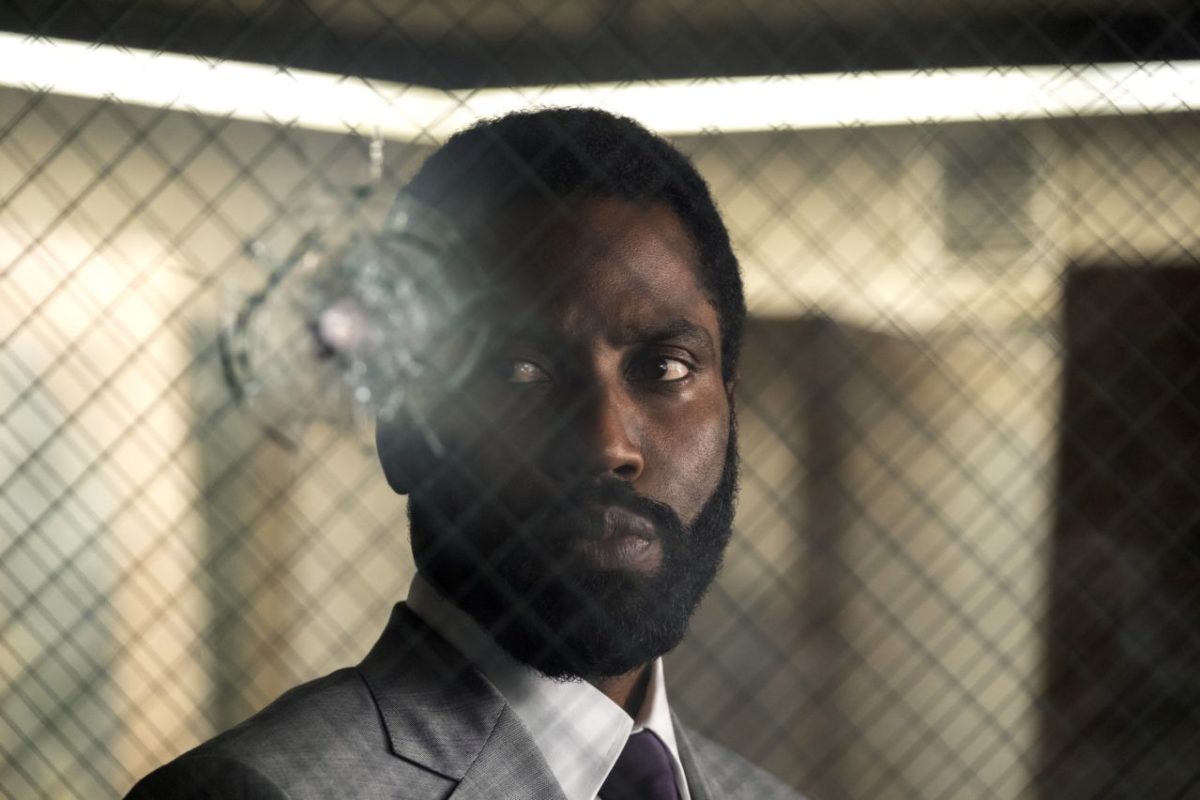
While Tenet was officially released in areas where cinemas were open beginning in August, it feels like much of the world is just catching up with it now as it arrives digitally and on home video. The initial reaction was muted (including our review), but I found it to be Christopher Nolan’s most fascinating and entertaining movie in many years. Bereft of any humanity, it feels like he had a 5-hour cut then removed every other line of dialogue to intentionally obfuscate the plot, as if the script was written by an alien who has never experienced anything in life but Bond films. When Nolan has reached for dramatic profundity in the past, it often falls flat, so to seem him do something so programmatic and emotion-free feels perfectly in his wheelhouse. While it got too much attention to be considered a cult hit in the making, one imagines it could emerge as his Blackhat in the years to come. (Yes, that’s a high compliment.) – Jordan R.
Where to Stream: VOD
Tesla (Michael Almereyda)
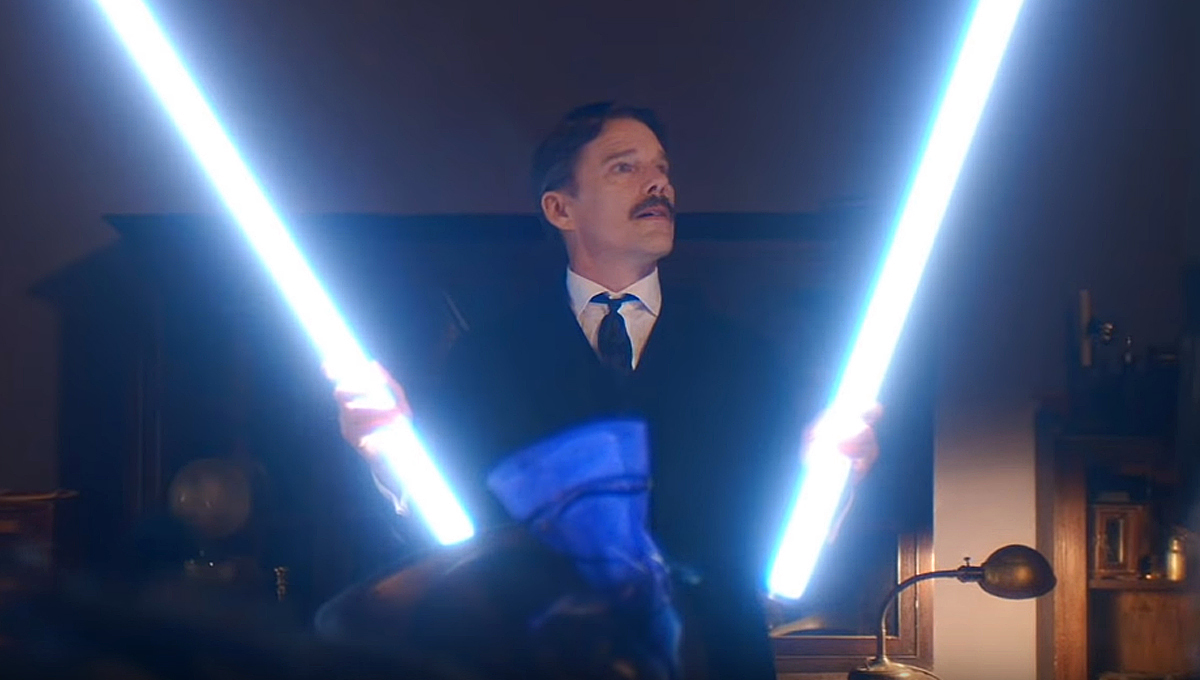
Have we enough evidence to name Michael Almereyda the American cinema’s greatest biographer? It’s a narrow range and hardly the highest bar to clear, yet his oeuvre yields both narratives (delightful whatsit Experimenter) and documentaries (This So-Called Disaster, about Sam Shepard; William Eggleston in the Real World; and Escapes, on the subject of actor and Blade Runner scribe Hampton Fancher) that show the largely unloved, oft-uncinematic concentration for everything it’s capable. This year saw the addition of Tesla, Almereyda’s formally playful examination of Nikola Tesla’s life, work, legacy, and (because nothing is as it seems) vocal skills; he’s here reunited, some 20 years after their fantastic Hamlet, with Ethan Hawke in the title role and Kyle MacLachlan as Thomas Edison, while Eve Hewson, playing Anne Morgan, is our guide through this film’s puzzle. – Nick N. (read his interview with the director)
Time (Garrett Bradley)

In September 1997, sparked by desperation and noble intentions, Rob Richardson committed armed robbery. He was handed a 65-year prison sentence with no real hope of getting out. His wife, Fox, who was expecting twins at the time and was already a mother to their four boys, was an accomplice, but took a plea deal and was released three and a half years later. The last two decades of a family ripped apart sets the stage for Garrett Bradley’s Time, a formally stunning masterwork of empathy, exhaustion, love, and rage. The title of Time isn’t just a reference to the sentence Rob was given. It’s every moment he’s deprived of as the world continues outside his cell. It’s what Fox and their family sacrifice in their daily struggle to get him out. It’s every instant that the system in power uses to make them wait for an answer. It’s a piece of something that they may be able to win back if Rob was to be released. And it’s a sense of timelessness in which the director captures it all with her black-and-white, symphonic approach, which melds the political and personal in overwhelmingly heartbreaking ways. – Jordan R. (full review)
Where to Stream: Amazon Prime
To the Ends of the Earth (Kiyoshi Kurosawa)

Six years after his 2013 Seventh Code, Kurosawa leaves his familiar Tokyo grounds to embark on his second feature outside Japan, again with singer-cum-actress Atsuko Maeda as lead, only this time the setting isn’t Vladivostok, Russia, but the sprawling prairies of Uzbekistan, and the film doesn’t unfurl as a thriller, but a resolutely low-key, unassuming charmer, an intimate portrait of someone thrown into a foreign land and struggling to find her bearings back. – Leonardo G. (full review)
Where to Stream: Metrograph’s Virtual Cinema
Tommaso (Abel Ferrara)
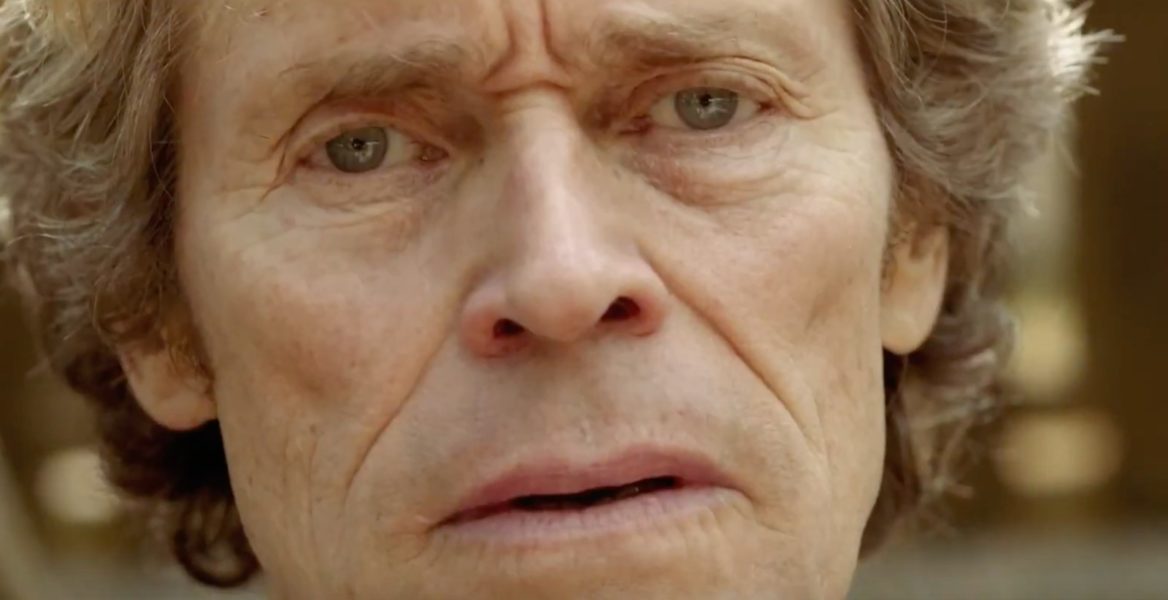
Most of this is a mirror of Ferrara’s own life: his move to Rome after U.S. funders stopped backing his movies following the 9/11 attacks; his struggles with addiction; his multiple marriages; his conversion to Buddhism and so on. Ferrara, a New York native, was raised Roman Catholic and religion is naturally key here once again, both narratively and formally. It’s fitting then that Tommaso feels so confessional and thus so resonant, especially given the scarcely believable casting of Christina and Anna. Indeed, mother and child both feature in scenes that one can only presume must have been painfully close to the bone. – Rory O. (full review)
The Vast of Night (Andrew Patterson)
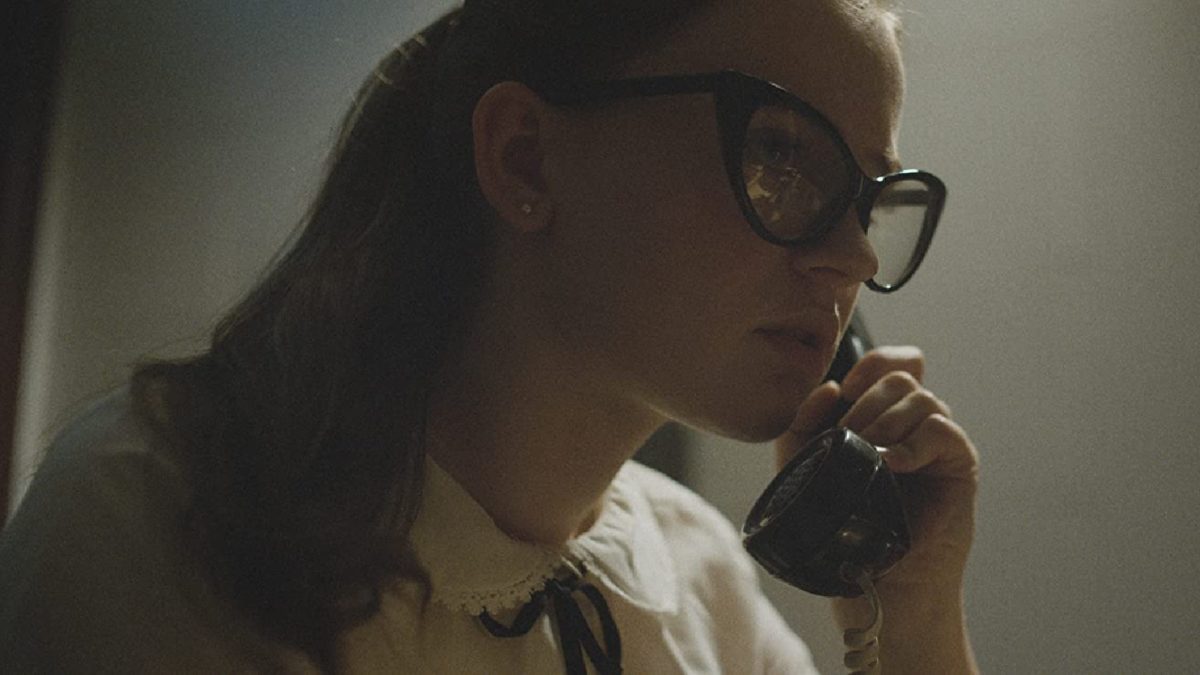
Whereas many a sci-fi film begins with a touch of the extraterrestrial to whet the appetite, The Vast of Night is far more interested in setting its foundation in the power of storytelling for an audience and the obsession on the part of the storyteller. Set in a small New Mexico town in the 1950s with no shortage of the kind of analog recording equipment fans of The Conversation and Blow Out will appreciate, this impressively polished microbudget production follows a young, impressionable switchboard operator Fay (Sierra McCormick) and a know-it-all radio DJ Everett (Jake Horowitz) over a single night as something mysterious comes through their airwaves. – Jordan R. (full review)
Where to Stream: Amazon Prime
Vitalina Varela (Pedro Costa)
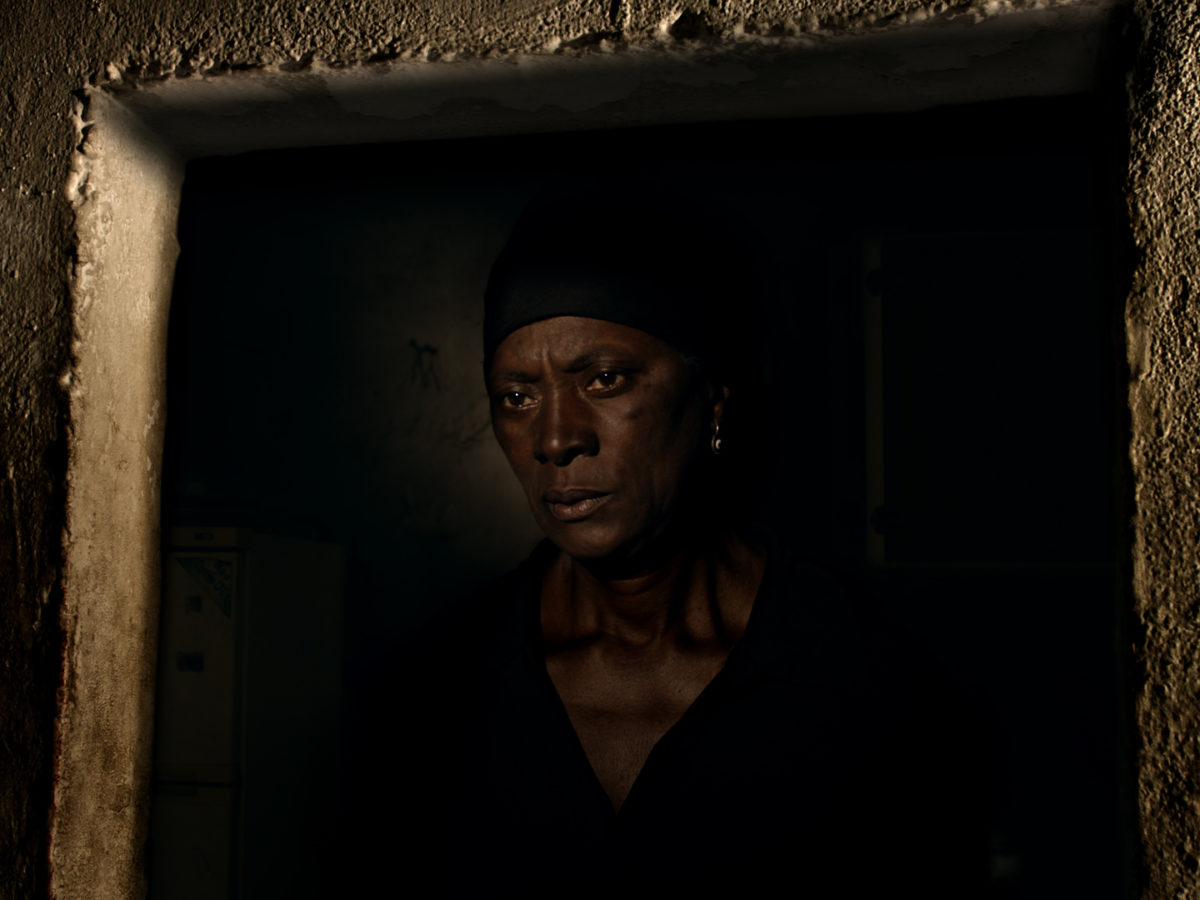
A dark back-alley drowned in shadow; towering concrete walls on either side; on the top right a row of headstones overlook; the glimmer of a walking stick emerges in the distance, and then a funeral procession. 15 minutes later a women disembarks from an airplane and is greeted not by family but by the airport’s cleaning staff. “There is nothing for you in Portugal, Vitalina,” they say. Welcome—or perhaps welcome back—to the world of Pedro Costa, the austere Portuguese director behind Colossal Youth (2006), In Vanda’s Room (2000), and other haunting works with which to grapple. – Rory O. (full review)
Where to Stream: The Criterion Channel, Projectr
The Whistlers (Corneliu Porumboiu)
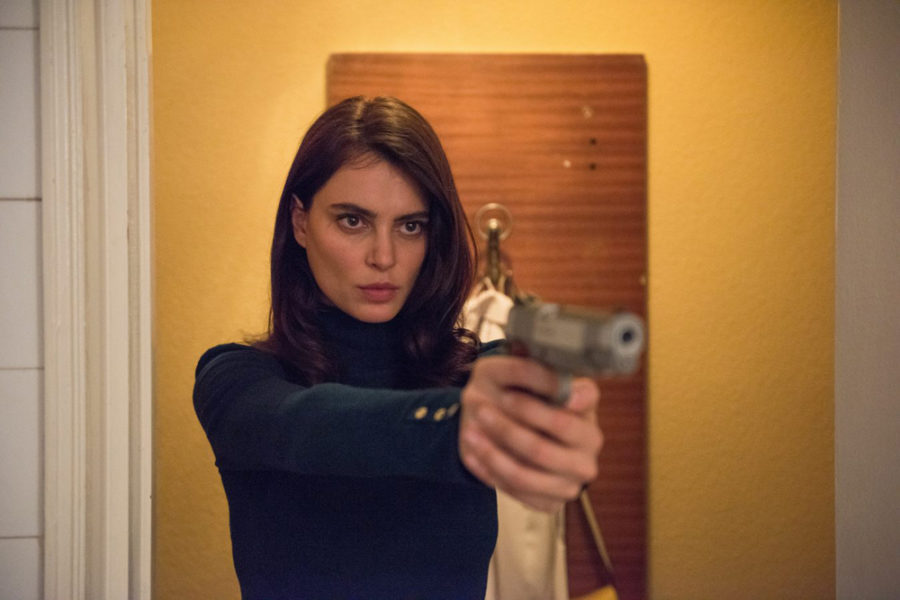
Since we’re not getting No Time to Die any time soon, how about another spin on a James Bond-esque adventure from one of the world’s greatest directors? Romanian director Corneliu Porumboiu’s stylish new film The Whistlers, which premiered at Cannes Film Festival, follows a police inspector who travels to the Canary Islands to uncover a plot of intrigue, mystery, murder, sex, and a strange new language. – Jordan R.
A White, White Day (Hlynur Pálmason)
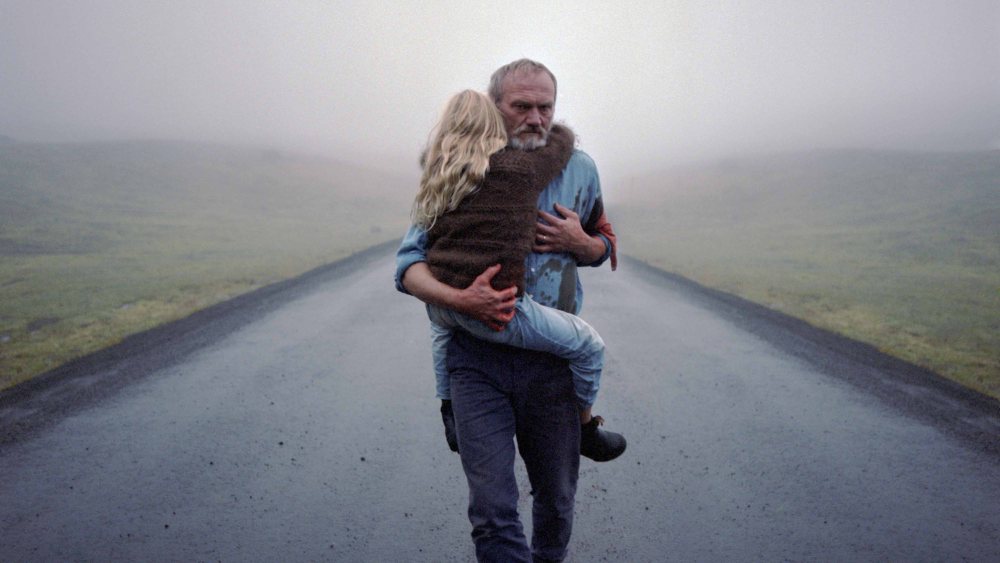
The phrase a “white, white day” refers to a moment when the landscape and sky are so dense with snow, mist or fog that it is no longer clear where the two meet. In Iceland–where this bleak meteorological phenomena often occurs–there is a saying that on a day like that one can converse with the dead. Hlynur Pálmason’s second feature A White, White Day begins with that saying. We then witness a death on one such day as a car veers off the road. The woman driving is–or rather was–the wife of the local police chief. Pálmason’s excellent new film is an examination of that man’s stages of grief. – Rory O. (full review)
Where to Stream: VOD
The Wild Goose Lake (Diao Yinan)
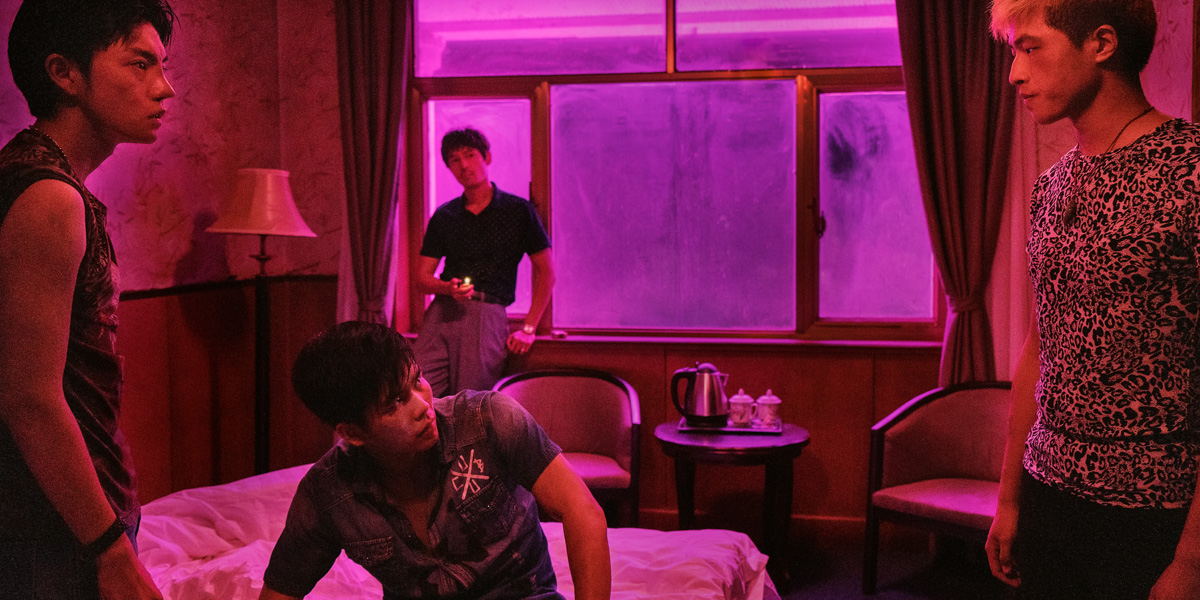
“Ever thought of running away?” “Where to?” This exchange comes late in The Wild Goose Lake, the latest film from stylish Chinese genre filmmaker Diao Yinan (previously awarded with Berlinale’s 2014 Golden Bear for his art film-inflected neo-noir Black Coal, Thin Ice), and within the film’s noir milieu the line fits. It’s shared between a gangster on the run and the call girl companion he’s been forcefully entwined with, however a strange combination of filmic tools means it comes tinged with a unique, near-cosmic portent, revealing even more so than his last film a much richer, wounded existentialism about two lonely, desperate people simply surviving in a dilapidated, contemporary Mainland China. – Josh L. (full review)
Where to Stream: VOD
The Wolf House (Cristóbal León and Joaquín Cociña)

When it comes to the field of animation, many productions can often succumb to a certain sameness in their respective visual approaches. This is certainly not the case for a bold new Chilean film. Directed by Cristóbal León and Joaquín Cociña, The Wolf House is a stop-motion animation that plays out in a single-sequence shot, telling a fairy tale story based loosely on Colonia Dignidad, a German émigré-run colony in post-WWII Chile that was revealed to have been used to imprison, torture, and murder dissidents during the Pinochet regime. (Again, this is not your standard animation.) – Jordan R.
Wolfwalkers (Tomm Moore and Ross Stewart)

The woodsmen are clearing out the forest to expand Kilkenny, Ireland’s farmland circa 1650 under orders of Lord Protector Cromwell (Simon McBurney)—an Englishman. He and the British crown see these Irish folk as a people in need of taming so it’s only fitting that he try his hand at ridding the countryside of wolves first. This is something these peasants can get behind because they fear what those beasts might do if left unchecked. They clamor for the soldiers to protect them. They willingly invite another Englishman in Bill Goodfellowe (Sean Bean) to serve as the Lordship’s chief hunter to do the deed. And this fearmongering distracts them from realizing how Cromwell’s threat of burning the forest if he fails foreshadows how he’ll treat their non-compliance too. – Jared M. (full review)
Where to Stream: Apple TV+
World of Tomorrow Episode Three: The Absent Destinations of David Prime (Don Hertzfeldt)
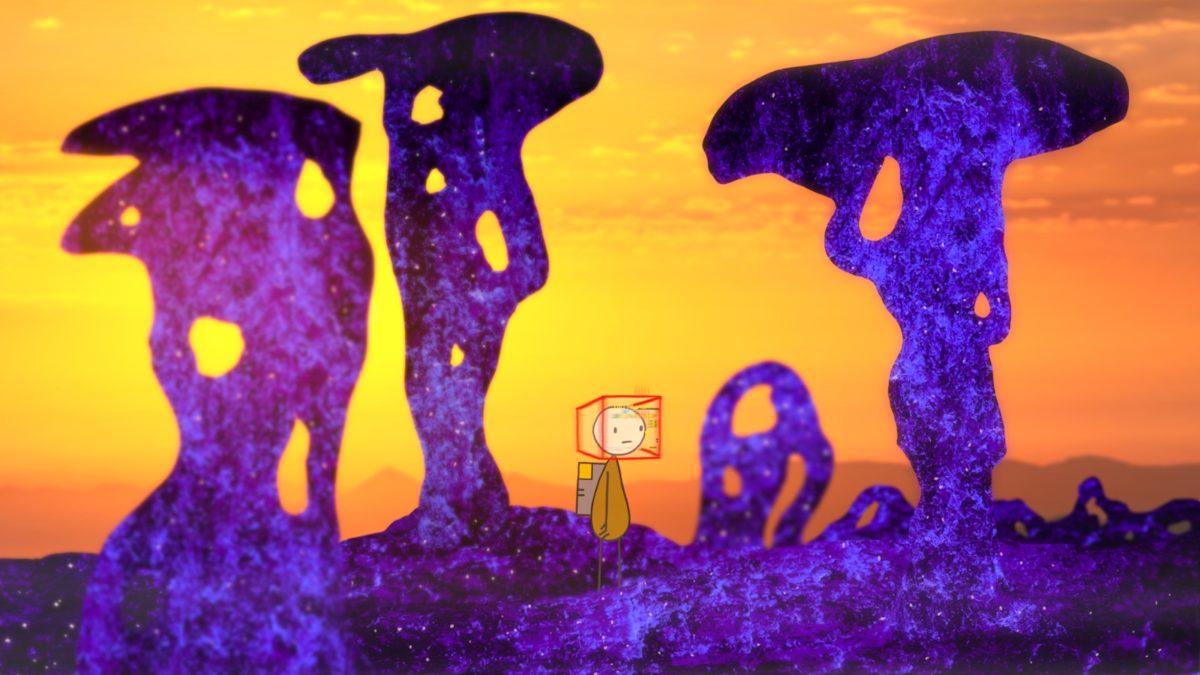
Throughout the whole of Don Herzfeldt’s World of Tomorrow trilogy, one thing is always constant; even in a future of amazing technology, it will be the ineffable interior of the human soul that will hold the most value. Clones, robots, and time travel (if you’ve seen any of these films, you will know the right way to pronounce that) may allow for new norms in terms of human accomplishment and lifespan, but they will never fill the void of those things we value as children, devoid of concepts of expense and mortality. It is this tenet that guides Hertzfeldt’s narrative and soul throughout the first two installments, and it finds new and more absurd heights in his third, The Absent Destinations of David Prime. – Brian R. (full review)
Where to Stream: Vimeo
Yourself and Yours (Hong Sang-soo)
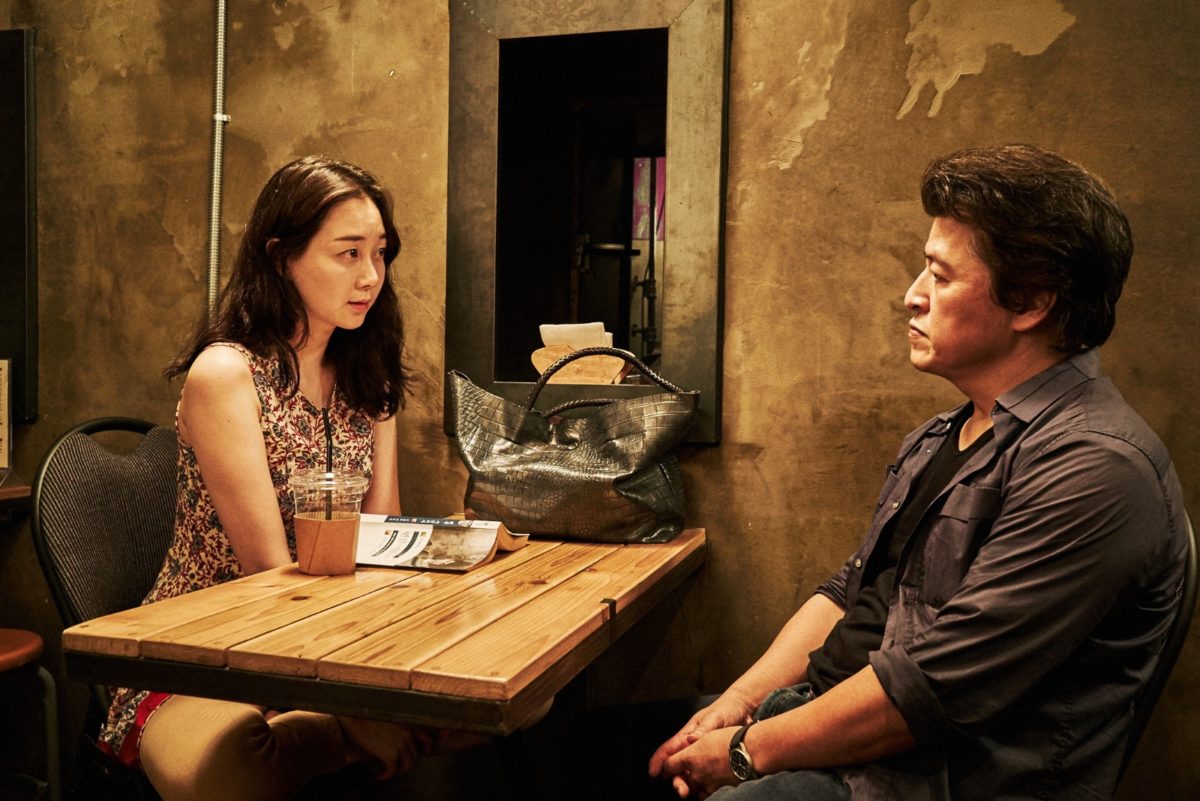
Yourself and Yours is enjoyable the way every other Hong Sang-soo film is enjoyable: funny, relatable and emotionally honest, structurally innovative, and composed with a patient eye that favors the peaks and valleys of conversation over standard get-to-the-point construction. Here, though, he wields a sharper blade: in its defiance of internal logic, character motivation, or even a conventional understanding, the film’s narrative (about doubles or twins or doppelgängers or all or none) brings contemplation of romantic relationships’ hardest edges — those gaps between men and women that no one’s quite figured out, perhaps because they’re entirely irreparable — to a point more digestible than the standard dramatic formats of shouting, crying, confrontation, etc. Largely because it’s funny – Nick N. (full review)
Where to Stream: Virtual Cinemas
Zombi Child (Bertrand Bonello)

Bertrand Bonello’s last film, the terrorism-themed thriller Nocturama, hit headlines as it was released in the wake of Islamic State terror attacks in France. Supposedly it was the reason the film didn’t debut in competition at Cannes that year and with the compelling Directors’ Fortnight premiere Zombi Child, the director has again swerved away from official selection. Where Nocturama pointed to a seething social tension that Bonello believed present in the undercurrent of contemporary France, this is a genre-blending horror satire on the country’s racial divisions that delves into the country’s post-colonial heritage and the myth of Haitian zombie legend. – Ed F. (full review)
Where to Stream: The Criterion Channel, VOD
Also Streaming
Amazon Prime
Alex Wheatle
Borat Subsequent Moviefilm
I’m Your Woman
Les Misérables
Red, White and Blue
Selah and the Spades
Apple TV+
Beastie Boys Story
Fireball: Visitors from Darker Worlds
The Criterion Channel
Guest of Honour
Sorry We Missed You
HBO Max
American Utopia
Bad Education
Deerskin
Emma.
The Mystery of D.B. Cooper
The Way Back
Welcome to Chechnya
The Witches
Hulu
Bad Hair
Happiest Season
The Lodge
The Mole Agent
The Painter and the Thief
Spaceship Earth
Sputnik
To the Stars
The Trip to Greece
MUBI
Netflix
The 40-Year-Old Version
Circus of Books
Crip Camp
Cuties
An Easy Girl
The Life Ahead
Lingua Franca
Mucho Mucho Amor
The Platform
A Shaun the Sheep Movie: Farmageddon
Wasp Network
What Did Jack Do?
Yes, God, Yes
Shudder
Color Out of Space
Dogs Don’t Wear Pants
Impetigore
Leap of Faith: William Friedkin on The Exorcist
Scare Me
Virtual Cinemas
76 Days
Assassins
The August Virgin
Coded Bias
The Donut King
Ham on Rye
Monsoon
Space Dogs
The Surrogate
The Twentieth Century
VOD
Amulet
Beats
Black Bear
Clementine
The Dark and the Wicked
Eternal Beauty
Feels Good Man
Freaky
The Giant
A Girl Missing
I Wish I Knew
I Used to Go Here
The King of Staten Island
Let Him Go
Joan of Arc
The Other Lamb
Proxima
Red Penguins
Relic
Saint Frances
The Sharks
Shithouse
The Sounding
Summerland
Train to Busan Presents: Peninsula
The Traitor
True History of the Kelly Gang
The Truth
The Wolf of Snow Hollow
You Don’t Nomi
Zappa
